Here are my favorite poems about Ireland categorized:
- Poems about Ireland that rhyme
- Poems about Irish culture
- Poems about Ireland’s beauty
So if you want the best poems about Ireland, then you’re in the right place.
Let’s get started!
- 111 Light-Hearted Poems About Islands
- 235 Immersive Poems About Woods
- 31 Fascinating Poems About Mountains
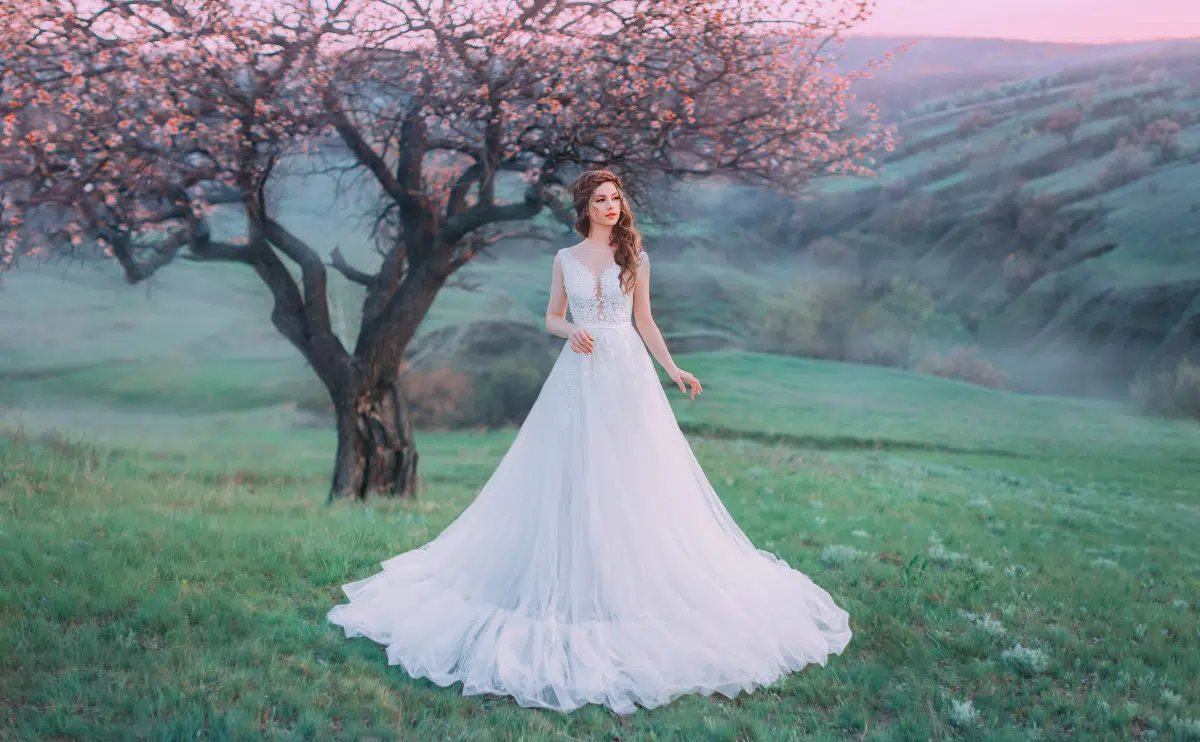
Astonishing Poems About Ireland

Welcome to a whimsical journey through the Emerald Isle, where the magic of Ireland unfolds in captivating verses.
Get swept away by the lyrical melodies of rhyming verses that pay homage to the vibrant spirit of Ireland and the sheer joy of living in this country.
Sit back and let this selection leave you with a touch of Irish magic in your soul as we traverse through the poetic tapestry of Ireland through these enchanting verses.
Ready to ignite your wanderlust?
Let’s jump right in!
My #1 Favorite Poem About Ireland
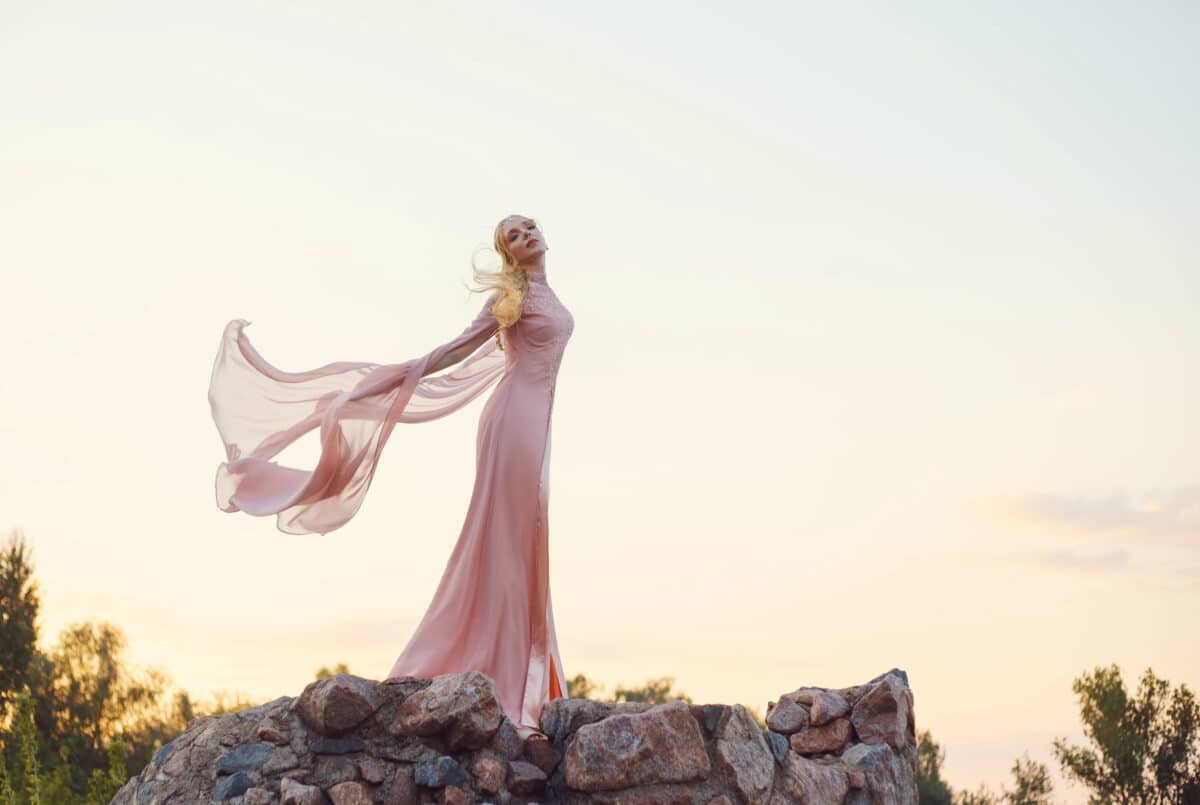
“Ireland” by Francis William Lauderdale Adams
O we have loved you through cold and rain
And pitiless frost,
Consuming our offering of blood and brain
Gladly again and again and again,
Though it all seemed lost,
Ireland, Ireland!
O we will fight, fight on for you till
Your anguish is past,
The wronged ones righted, the tyrants still. –
Though God has not saved you, yet we will,
At the last, at the last,
Ireland, Ireland!
O we will love you in warmth and light
And the happy day,
When you have forgotten the terrible night,
Standing proud and beautiful bright
For ever and aye,
Ireland, Ireland!
Poems About Ireland That Rhyme
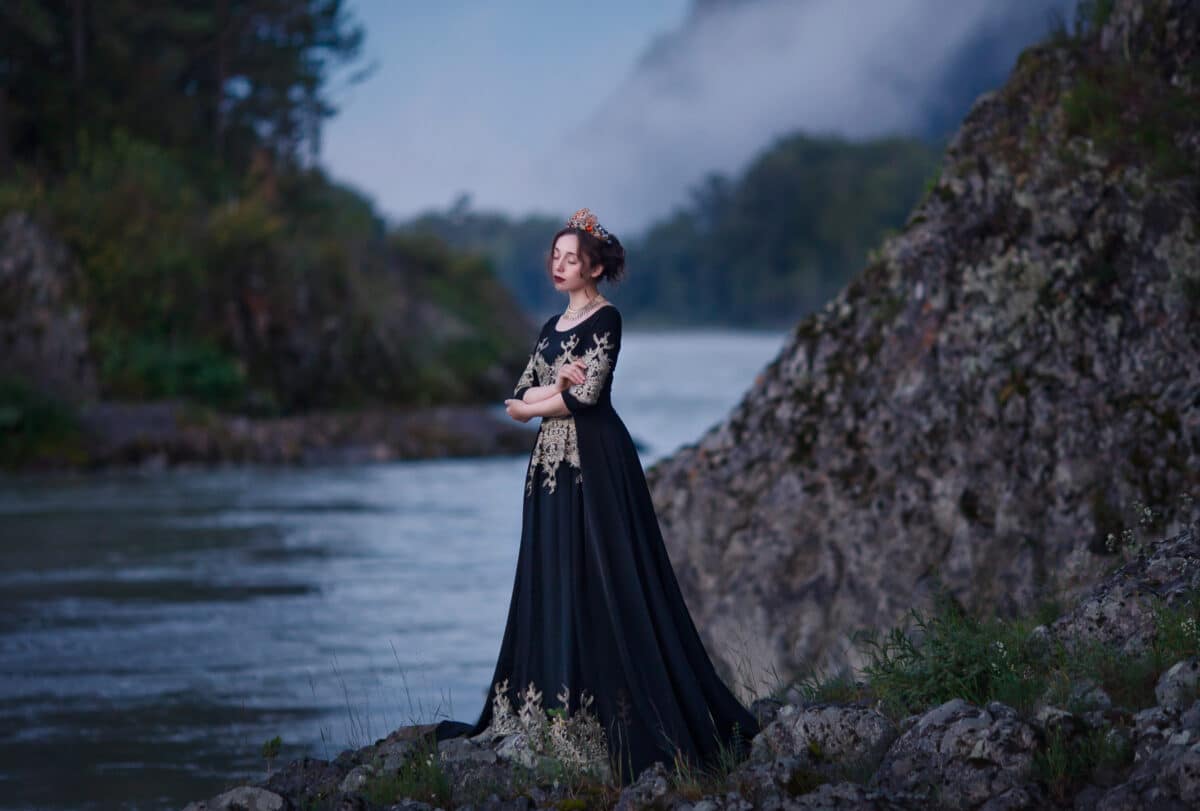
From “The Faerie Queene” by Edmund Spenser
Ne thence the Irishe Rivers absent were:
Sith no lesse famous then the rest they bee,
And ioyne in neighbourhood of kingdome nere,
Why should they not likewise in love agree,
And ioy likewise this solemne day to see?
They saw it all, and present were in place;
Though I them all, according their degree,
Cannot recount, nor tell their hidden race,
Nor read the salvage countries thorough which they pace.
There was the Liffy rolling downe the lea;
The sandy Slane; the stony Anbrian;
The spacious Shenan spreading like a sea;
The pleasant Boyne; the fishy fruitfull Ban;
Swift Awniduff, which of the English man
Is cal’de Blacke-water; and the Liffar deep;
Sad Trowis, that once his people over-ran;
Strong Allo tombling from Slewlogher steep;
And Mulla mine, whose waves I whilom taught to weep.
And there the three renowned Brethren were,
Which that great gyant Blomius begot
Of the faire nimph Rheüsa wandring there:
One day, as she to shunne the season whot
Under Slewboome in shady grove was got,
This gyant found her, and by force deflower’d;
Whereof conceiving, she in time forth brought
These three faire sons, which being thenceforth powrd
In three great rivers ran, and many countreis scowrd.
The first the gentle Shure that, making way
By sweet Clonmell, adornes rich Waterford;
The next, the stubborne Newre whose waters gray
By faire Kilkenny and Rosseponte boord;
The third, the goodly Barow which doth hoord
Great heaps of salmons in his deepe bosóme:
All which, long sundred, doe at last accord
To ioyne in one, ere to the sea they come;
So, flowing all from one, all one at last become.
There also was the wide embayed Mayre;
The pleasaunt Bandon crownd with many a wood;
The spreading Lee that, like an island fayre,
Encloseth Corke with his divided flood;
And balefull Oure late staind with English blood:
With many more whose names no tongue can tell.
All which that day in order seemly good
Did on the Thames attend, and waited well
To doe their dueful service, as to them befell.
“The Blarney” by Samuel Lover
O, did you ne’er hear of “the Blarney”
That ’s found near the banks of Killarney?
Believe it from me,
No girl’s heart is free,
Once she hears the sweet sound of the Blarney.
For the Blarney ’s so great a deceiver,
That a girl thinks you ’re there, though you leave her;
And never finds out
All the tricks you ’re about,
Till she ’s quite gone herself—with your Blarney.
O, say, would you find this same “Blarney”?
There ’s a castle, not far from Killarney,
On the top of its wall
(But take care you don’t fall)
There ’s a stone that contains all this Blarney.
Like a magnet, its influence such is,
That attraction it gives all it touches;
If you kiss it, they say,
From that blessed day
You may kiss whom you please with your Blarney.
“Gougaune Barra” by James Joseph Callanan
There is a green island in lone Gougaune Barra,
Where Allua of songs rushes forth as an arrow;
In deep-valleyed Desmond a thousand wild fountains
Come down to that lake from their home in the mountains.
There grows the wild ash, and a time-stricken willow
Looks chidingly down on the mirth of the billow;
As, like some gay child, that sad monitor scorning,
It lightly laughs back to the laugh of the morning.
And its zone of dark hills,—O, to see them all brightening,
When the tempest flings out its red banner of lightning,
And the waters rush down, mid the thunder’s deep rattle,
Like clans from their hills at the voice of the battle;
And brightly the fire-crested billows are gleaming,
And wildly from Mullagh the eagles are screaming!
O, where is the dwelling, in valley or highland,
So meet for a bard as this lone little island?
How oft when the summer sun rested on Clara,
And lit the dark heath on the hills of Ivera,
Have I sought thee, sweet spot, from my home by the ocean,
And trod all thy wilds with a minstrel’s devotion,
And thought of thy bards, when assembling together,
In the cleft of thy rocks, or the depth of thy heather;
They fled from the Saxon’s dark bondage and slaughter,
And waked their last song by the rush of thy water.
High sons of the lyre, O, how proud was the feeling,
To think while alone through that solitude stealing,
Though loftier minstrels green Erin can number,
I only awoke your wild harp from its slumber,
And mingled once more with the voice of those fountains
The songs even Echo forgot on her mountains;
And gleaned each gray legend that darkly was sleeping
Where the mist and the rain o’er their beauty were creeping!
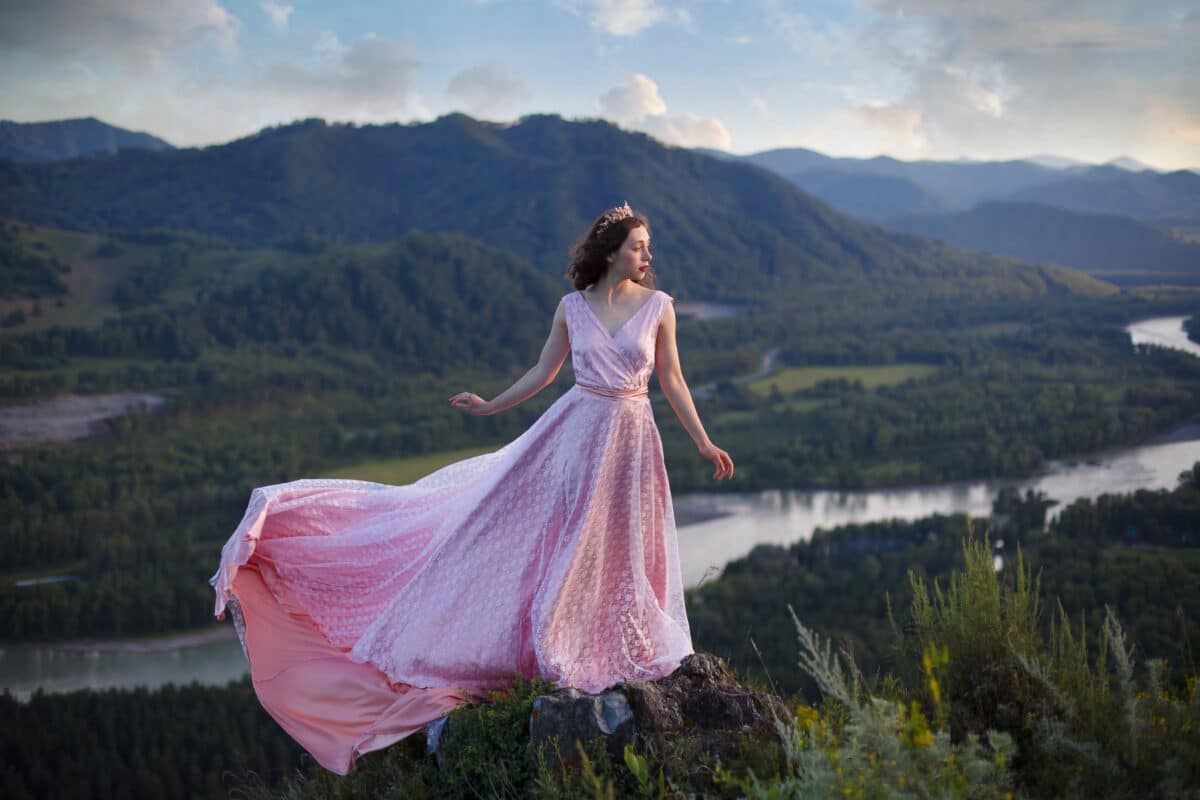
“Ode to the Hill of Howth” by William Hamilton Drummond
How sweet from proud Ben-Edir’s height,
To see the ocean roll in light;
And fleets swift-bounding in the gale,
With warriors clothed in shining mail!
Fair hill, on thee great Finn of old
Was wont his counsels sage to hold;
On thee rich bowls the Fenians crowned,
And passed the foaming beverage round.
’T was thine within a sea-washed cave
To hide and shelter Duivne brave,
When, snared by Grace’s charms divine,
He bore her o’er the raging brine.
Fair hill, thy slopes are ever seen
Bedecked with flowers or robed in green;
Thy nut-groves rustle o’er the deep,
And forests crown thy cliff-girt steep.
High from thy russet peaks ’t is sweet
To see the embattled war-ships meet;
To hear the crash, the shout, the roar
Of cannon, through the caverned shore.
Most beauteous hill, around whose head
Ten thousand sea-birds’ pinions spread,
May joy thy lord’s true bosom thrill,
Chief of the Fenians’ happy hill!
“April in Ireland” by Nora Hopper Chesson
She hath a woven garland all of the sighing sedge,
And all her flowers are snowdrops grown on the winter’s edge:
The golden looms of Tir na n’ Og wove all the winter through
Her gown of mist and raindrops shot with a cloudy blue.
Sunlight she holds in one hand, and rain she scatters after,
And through the rainy twilight we hear her fitful laughter.
She shakes down on her flowers the snows less white than they,
Then quicken with her kisses the folded “knots o’ May.”
She seeks the summer-lover that never shall be hers,
Fain for gold leaves of autumn she passes by the furze,
Though buried gold it hideth: she scorns her sedgy crown,
And pressing blindly sunwards she treads her snowdrops down.
Her gifts are all a fardel of wayward smiles and tears,
Yet hope she also holdeth, this daughter of the years—
A hope that blossoms faintly set upon sorrow’s edge:
She hath a woven garland of all the sighing sedge.
“The Dirge of Athunree” by Aubrey Thomas de Vere
Athunree! Athunree!
Erin’s heart, it broke on thee!
Ne’er till then in all its woe
Did that heart its hope forego.
Save a little child—but one—
The latest regal race is gone.
Roderick died again on thee,
Athunree!
Athunree! Athunree!
A hundred years and forty-three
Winter-winged and black as night
O’er the land had tracked their flight:
In Clonmacnoise from earthy bed
Roderick raised once more his head:—
Fedlim flood-like rushed to thee,
Athunree!
Athunree! Athunree!
The light that struggled sank on thee!
Ne’er since Cathall the red-handed
Such a host till then was banded.
Long-haired Kerne and Galloglass
Met the Norman face to face;
The saffron standard floated far
O’er the on-rolling wave of war;
Bards the onset sang o’er thee,
Athunree!
Athunree! Athunree!
The poison tree took root in thee!
What might naked breasts avail
’Gainst sharp spear and steel-ribbed mail?
Of our Princes twenty-nine,
Bulwarks fair of Connor’s line,
Of our clansmen thousands ten,
Slept on thy red ridges. Then—
Then the night came down on thee,
Athunree!
Athunree! Athunree!
Strangely shone that moon on thee!
Like the lamp of them that tread
Staggering o’er the heaps of dead,
Seeking that they fear to see.
O that widows’ wailing sore!
On it rang to Oranmore;
Died, they say, among the piles
That make holy Aran’s isles;—
It was Erin wept on thee,
Athunree!
Athunree! Athunree!
The heart of Erin burst on thee!
Since that hour some unseen hand
On her forehead stamps the brand:
Her children ate that hour the fruit
That slays manhood at the root;
Our warriors are not what they were;
Our maids no more are blithe and fair;
Truth and honor died with thee,
Athunree!
Athunree! Athunree!
Never harvest wave o’er thee!
Never sweetly breathing kine
Pant o’er golden meads of thine!
Barren be thou as the tomb;
May the night-bird haunt thy gloom,
And the wailer from the sea,
Athunree!
Athunree! Athunree!
All my heart is sore for thee,
It was Erin died on thee,
Athunree!
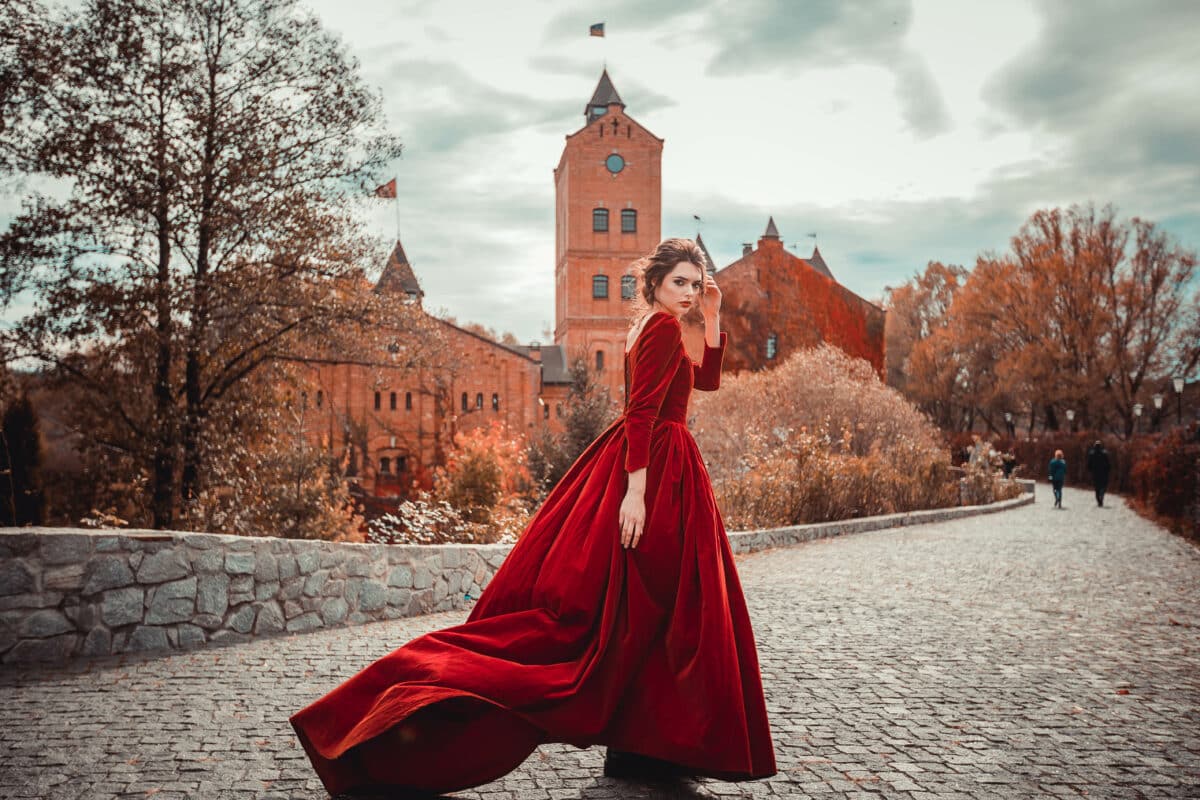
“Shanid Castle” by Gerald Griffin
On Shannon side the day is closing fair,
The kern sits musing by his shieling low,
And marks, beyond the lonely hills of Clare,
Blue, rimmed with gold, the clouds of sunset glow.
Hush in that sun the wide-spread waters flow,
Returning warm the day’s departing smile;
Along the sunny highland pacing slow
The keyriaght lingers with his herd the while,
And bells are tolling faint from far Saint Sinon’s isle.
O loved shore! with softest memories twined,
Sweet fall the summer on thy margin fair!
And peace come whispering, like a morning wind,
Dear thoughts of love to every bosom there!
The horrid wreck and driving storm forbear
Thy smiling strand, nor oft the accents swell
Along thy hills of grief or heart-wrung care;
But heaven look down upon each lowly dell,
And bless thee for the joys I yet remember well!
“As Vanquished Erin” by Thomas Moore
As vanquish’d Erin wept beside
The Boyne’s ill-fated river,
She saw where Discord, in the tide,
Had dropp’d his loaded quiver.
“Lie hid,” she cried, “ye venom’d darts,
Where mortal eye may shun you;
Lie hid — the stain of manly hearts,
That bled for me, is on you.”
But vain her wish, her weeping vain —
As Time too well hath taught her —
Each year the Fiend returns again,
And dives into that water;
And brings, triumphant, from beneath
His shafts of desolation,
And sends them, wing’d with worse than death,
Through all her maddening nation.
Alas for her who sits and mourns,
Even now, beside that river —
Unwearied still the Fiend returns,
And stored is still his quiver.
“When will this end, ye Powers of Good?”
She weeping asks for ever;
But only hears, from out that flood,
The Demon answer, “Never!”
“Seven Churches of Clonmacnoise” by Robert Leighton
There’s a place in the middle of Ireland called
Seven Churches of Clonmacnoise,—
As noisy a place as ever squalled,
If the churches have each a different voice.
I never was there myself, or mayhap
I ’d say something authentic of my own,
Only, I see the place on the map,
Some miles on the south side of Athlone;
And it strikes me, as the name I read,
That it must be a very queer place indeed.
In what year of our Lord did it get such a name?
When the ranting Protestant sects began?
Or farther back, when St. Patrick came,
And fashioned the heathen on the Roman plan?
And for what good reason was such a name given?
Did he actually seven churches raise?
Was the necromantic number seven
Supposed to be all essential for praise?
No; Patrick had too much equipoise
To pitch the whole seven at Clonmacnoise.
I rather think place and name arose
Subsequent to Luther, Calvin, and Knox,—
Three of the Pope’s most terrible foes,
Who broke up his fold into many flocks.
Then seven of the sects, for all one knows,
Had made their way to this central spot,
And seven churches, we may suppose,
Might then be built as well as not.
Hence Clonmacnoise when the noisy seven
Sang each in a different key to Heaven.
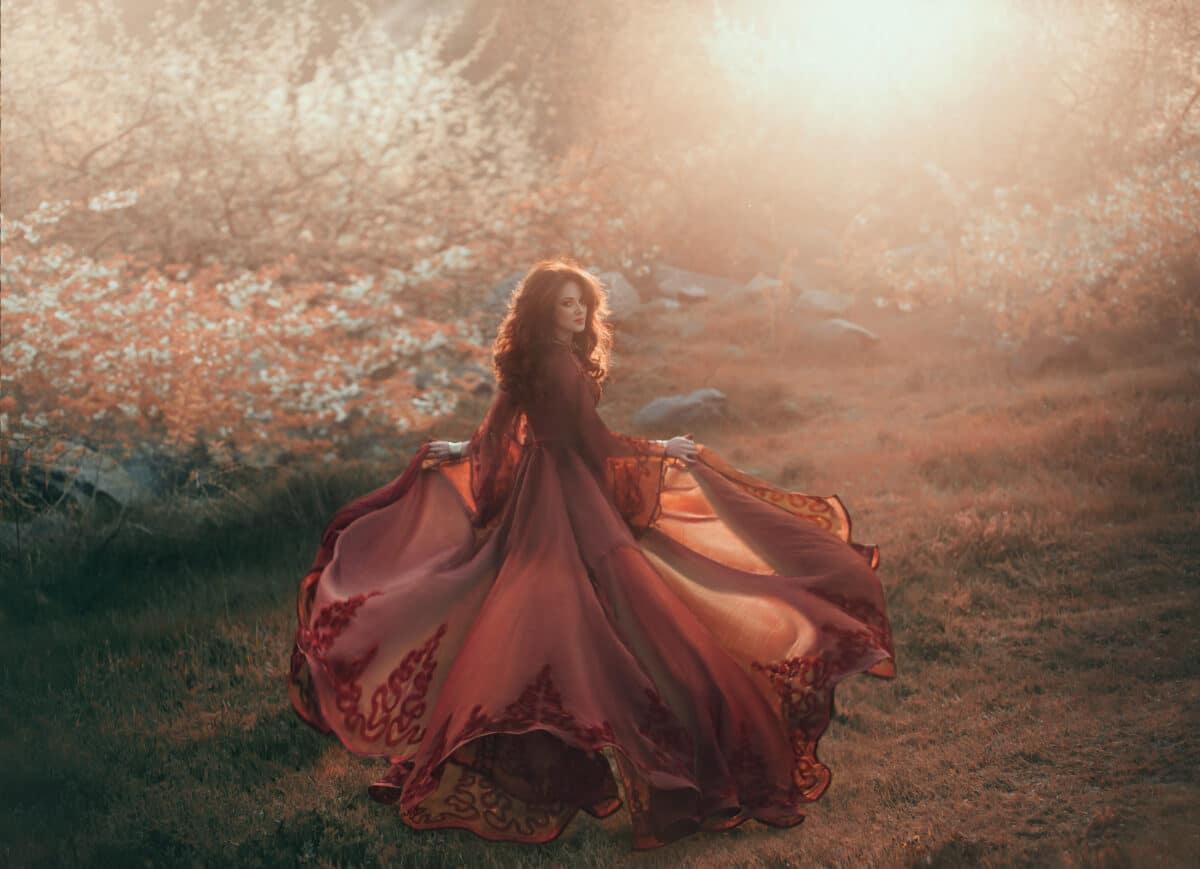
“Sunset on the Lower Shannon” by Sir Aubrey de Vere
Stilled are the winds, scarce heard far ocean’s roar;
And maiden waves creep coyly to the shore,
Tinged with the purest blush of closing even.
Behold yon hills that catch the glow of heaven!
Those shadows purpling o’er the watery scene,
Now streaked with gold, now tinged with tender green,
And yon bright path that burns along the deep,
Ere the sun sinks behind his western steep!
Soft fades the parting glory through the sky,
Commingling with the cool aerial dye.
Light barks, with dusky sails, scarce seen to glide,
Bend their brown shadows o’er the burnished tide;
And hark! at intervals the sound of oars
Comes, faint with distance, to the listening shores,
Blent with the plaintive cadence of the song
Of boatmen chanting as they drift along;—
But see, the radiant orb now sinks apace,
Gradual and slow he stoops his glorious face;
And now but half his swelling disk appears,
And now how quickly gone! he scarcely rears
One burning point above the mountain’s head,—
And now the last expiring beam has fled.
“To the Castle of Donegal” by William Allingham
Castle of Donegal! both green and gray,
Like an old poet; where thine outworks lay
A sessions-house, and barracks for police
Lie in thy shadow. If from ivied peace
We could recall thee, and revive to-day
The men whom thy crazed walls, their children, cease
Almost to recollect, how we and they
Would wonder! How their wonder would increase
When by their antique customs they were driven
(As soon would happen to those chiefs of yore)
To feel our unromantic forms of power,
Police and statute law. Therefore, still riven
And roofless be thou; strength is law no more;
The times that suited thee are gone, thank Heaven!
“The Meeting Of The Waters” by Thomas Moore
There is not in the wide world a valley so sweet
As that vale in whose bosom the bright waters meet;
Oh! the last rays of feeling and life must depart,
Ere the bloom of that valley shall fade from my heart.
Yet it was not that nature had shed o’er the scene
Her purest of crystal and brightest of green;
‘Twas not her soft magic of streamlet or hill,
Oh! no, — it was something more exquisite still.
‘Twas that friends, the beloved of my bosom, were near,
Who made every dear scene of enchantment more dear,
And who felt how the best charms of nature improve,
When we see them reflected from looks that we love.
Sweet vale of Avoca! how calm could I rest
In thy bosom of shade, with the friends I love best,
Where the storms that we feel in this cold world should cease,
And our hearts, like thy waters, be mingled in peace.
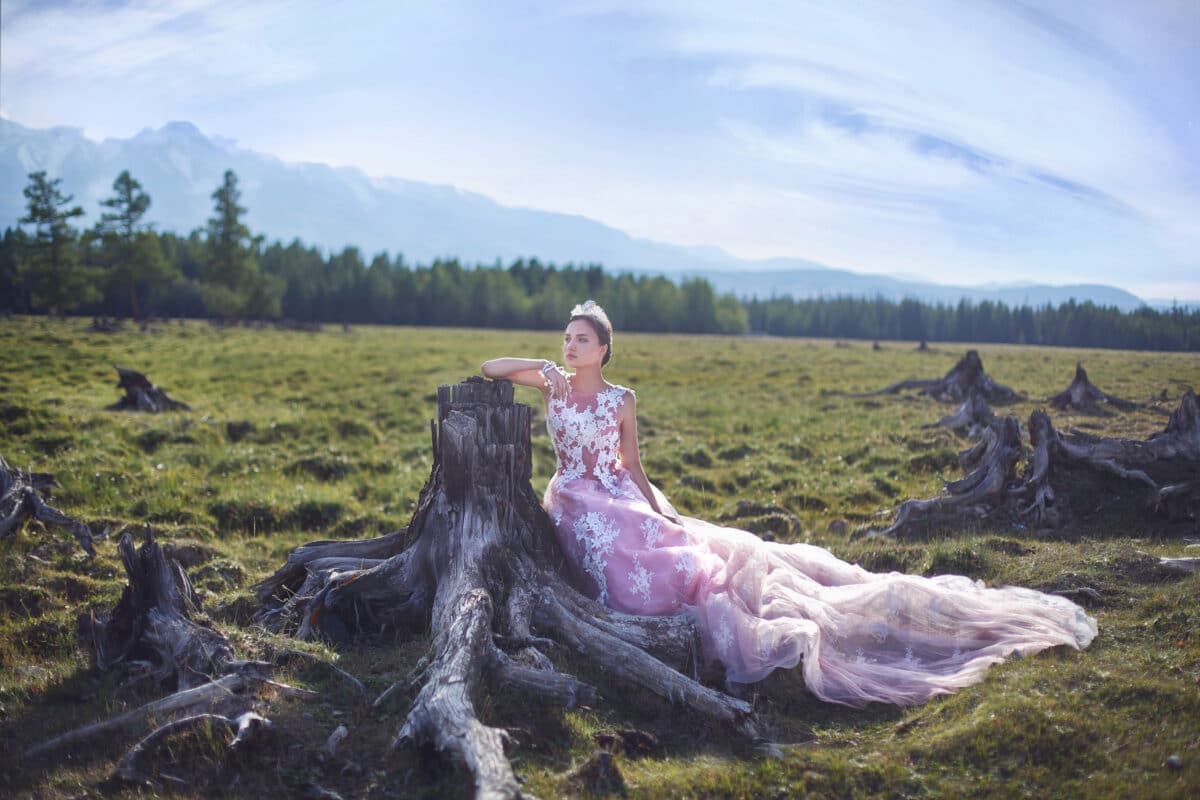
“Ireland, Ireland” by Henry John Newbolt, Sir
Down thy valleys, Ireland, Ireland,
Down thy valleys green and sad,
Still thy spirit wanders wailing,
Wanders wailing, wanders mad.
Long ago that anguish took thee,
Ireland, Ireland, green and fair,
Spoilers strong in darkness took thee,
Broke thy heart and left thee there.
Down thy valleys, Ireland, Ireland,
Still thy spirit wanders mad;
All too late they love that wronged thee,
Ireland, Ireland, green and sad.
“O’Brien of Arra” by Thomas Davis
Tall are the towers of O’Kennedy,
Broad are the lands of MacCarha,
Desmond feeds five hundred men a-day;
Yet here ’s to O’Brien of Arra!
Up from the Castle of Drumineer,
Down from the top of Camailte,
Clansman and kinsman are coming here
To give him the Cead mile failte.
See you the mountains look huge at eve,—
So is our chieftain in battle;
Welcome he has for the fugitive,
Usquebaugh, fighting, and cattle!
Up from the Castle of Drumineer,
Down from the top of Camailte,
Gossip and ally are coming here
To give him the Cead mile failte.
Horses the valleys are tramping on,
Sleek from the Sasanach manger;
Creaghts the hills are encamping on,
Empty the bawns of the stranger!
Up from the Castle of Drumineer,
Down from the top of Camailte,
Kern and bonaght are coming here
To give him the Cead mile failte.
He has black silver from Killaloe,—
Ryan and Carroll are neighbors,
Nenagh submits with a pillileu,
Butler is meat for our sabres!
Up from the Castle of Drumineer,
Down from the top of Camailte,
Ryan and Carroll are coming here
To give him the Cead mile failte.
’T is scarce a week since through Ossory
Chased he the Baron of Durrow,—
Forced him five rivers to cross, or he
Had died by the sword of Red Murrough!
Up from the Castle of Drumineer,
Down from the top of Camailte,
All the O’Briens are coming here
To give him the Cead mile failte.
Tall are the towers of O’Kennedy,
Broad are the lands of MacCarha,
Desmond feeds five hundred men a-day;
Yet here ’s to O’Brien of Arra!
Up from the Castle of Drumineer,
Down from the top of Camailte,
Clansman and kinsman are coming here
To give him the Cead mile failte.
“The Battle of the Boyne” by Henry Wadsworth Longfellow
July the first, in Oldbridge town,
There was a grievous battle,
Where many a man lay on the ground,
By the cannons that did rattle.
King James he pitched his tents between
The lines for to retire;
But King William threw his bomb-balls in,
And set them all on fire.
Thereat enraged, they vowed revenge
Upon King William’s forces;
And often did cry vehemently
That they would stop their courses.
A bullet from the Irish came,
Which grazed King William’s arm;
They thought his Majesty was slain,
Yet it did him little harm.
Duke Schomberg then, in friendly care,
His king would often caution
To shun the spot where bullets hot
Retained their rapid motion.
But William said, “He don’t deserve
The name of Faith’s defender,
That would not venture life and limb
To make a foe surrender.”
When we the Boyne began to cross,
The enemy they descended;
But few of our brave men were lost,
So stoutly we defended.
The horse was the first that marchéd o’er,
The foot soon followed a’ter,
But brave Duke Schomberg was no more,
By venturing over the water.
When valiant Schomberg he was slain,
King William thus accosted
His warlike men for to march on,
And he would be the foremost.
“Brave boys,” he said, “be not dismayed
For the losing of one commander;
For God will be our king this day,
And I ’ll be general under.”
Then stoutly we the Boyne did cross,
To give our enemies battle;
Our cannon, to our foes’ great cost,
Like thundering claps did rattle.
In majestic mien our prince rode o’er,
His men soon followed a’ter;
With blows and shouts put our foes to the rout,
The day we crossed the water.
The Protestants of Drogheda
Have reasons to be thankful
That they were not to bondage brought,
They being but a handful.
First to the Tholsel they were brought,
And tied at Milmount a’ter,
But brave King William set them free,
By venturing over the water.
The cunning French near to Duleek
Had taken up their quarters,
And fenced themselves on every side,
Still waiting for new orders.
But in the dead time of the night
They set the field on fire,
And long before the morning light,
To Dublin they did retire.
Then said King William to his men,
After the French departed,
“I ’m glad,” said he, “that none of ye
Seeméd to be faint-hearted,
So sheathe your swords, and rest awhile,
In time we ’ll follow a’ter”:
These words he uttered with a smile,
The day he crossed the water.
Come, let us all, with heart and voice,
Applaud our lives’ defender,
Who at the Boyne his valor showed,
And made his foes surrender.
To God above the praise we ’ll give,
Both now and ever a’ter,
And bless the glorious memory
Of King William that crossed the Boyne water.
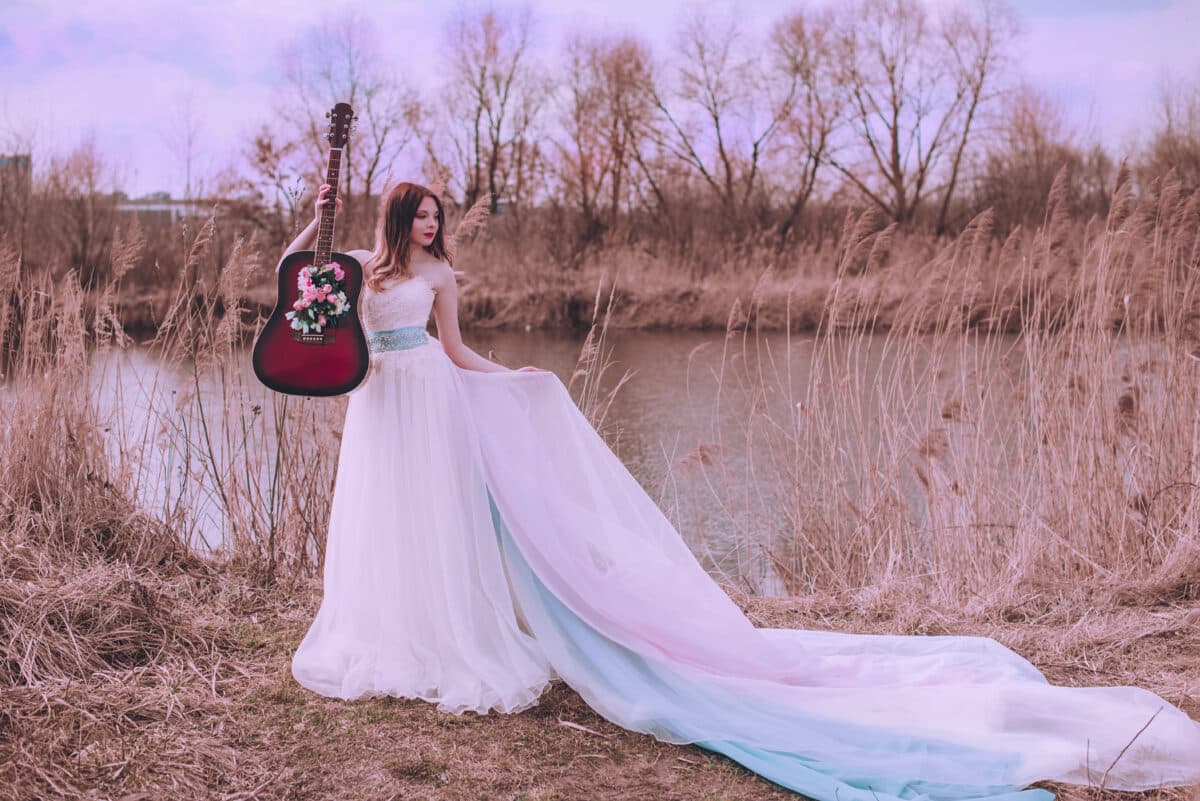
“The Music of St. Patrick’s” by Felicia Hemans
Again, O, send that anthem peal again
Through the arched roof in triumph to the sky!
Bid the old tombs ring proudly to the strain,
The banners thrill as if with victory!
Such sounds the warrior awe-struck might have heard,
While armed for fields of chivalrous renown;
Such the high hearts of kings might well have stirred,
While throbbing still beneath the recent crown!
Those notes once more!—They bear my soul away,
They lend the wings of morning to its flight;
No earthly passion in the exulting lay
Whispers one tone to win me from that height.
All is of Heaven! Yet wherefore to mine eye
Gush the vain tears unbidden from their source,
Even while the waves of that strong harmony
Roll with my spirit on their sounding course?
Wherefore must rapture its full heart reveal
Thus, by the burst of sorrow’s token shower!
O, is it not, that humbly we may feel
Our nature’s limit in its proudest hour?
“A Ballad of Athlone” by Aubrey Thomas de Vere
Does any man dream that a Gael can fear,
Of a thousand deeds let him learn but one!
The Shannon swept onward, broad and clear,
Between the Leaguers and worn Athlone.
“Break down the bridge!”—Six warriors rushed
Through the storm of shot and the storm of shell:
With late, but certain victory flushed,
The grim Dutch gunners eyed them well.
They wrenched at the planks mid a hail of fire;
They fell in death, their work half done:
The bridge stood fast, and nigh and nigher
The foe swarmed darkly, densely on.
“O, who for Erin will strike a stroke?
Who hurl yon planks where the waters roar?”
Six warriors forth from their comrades broke,
And flung them upon that bridge once more.
Again at the rocking planks they dashed;
And four dropped dead, and two remained:
The huge beams groaned, and the arch down-crashed;
Two stalwart swimmers the margin gained.
St. Ruth in his stirrups stood up, and cried,
“I have seen no deed like that in France!”
With a toss of his head Sarsfield replied,
“They had luck, the dogs! ’T was a merry chance!”
O, many a year upon Shannon’s side
They sang upon moor and they sang upon heath
Of the twain that breasted that raging tide,
And the ten that shook bloody hands with Death!
“Dedication, —To Ireland” by Jane Francesca Agnes Wilde
My country, wounded to the heart,
Could I but flash along thy soul
Electric power to rive apart
The thunder‐clouds that round thee roll,
And, by my burning words, uplift
Thy life from out Death’s icy drift,
Till the full splendours of our age
Shone round thee for thy heritage
As Miriam’s, by the Red Sea strand
Clashing proud cymbals, so my hand
Would strike thy harp,
Loved Ireland!
She flung her triumphs to the stars
In glorious chants for freedom won,
While over Pharaoh’s gilded cars
The fierce, death‐bearing waves rolled on;
I can but look in God’s great face,
And pray Him for our fated race,
To come in Sinai thunders down,
And, with His mystic radiance, crown
Some Prophet‐Leader, with command
To break the strength of Egypt’s band,
And set thee free,
Loved Ireland!
New energies, from higher source,
Must make the strong life‐currents flow,
As Alpine glaciers in their course
Stir the deep torrents ‘neath the snow.
The woman’s voice dies in the strife
Of Liberty’s awakening life;
We wait the hero heart to lead,
The hero, who can guide at need,
And strike with bolder, stronger hand,
Though towering hosts his path withstand
Thy golden harp,
Loved Ireland!
For I can breathe no trumpet call,
To make the slumb’ring Soul arise;
I only lift the funeral‐pall,
That so God’s light might touch thine eyes,
And ring the silver prayer‐bell clear,
To rouse thee from thy trance of fear;
Yet, if thy mighty heart has stirred,
Even with one pulse‐throb at my word,
Then not in vain my woman’s hand
Has struck thy gold harp while I stand,
Waiting thy rise
Loved Ireland!
Poems About Irish Culture
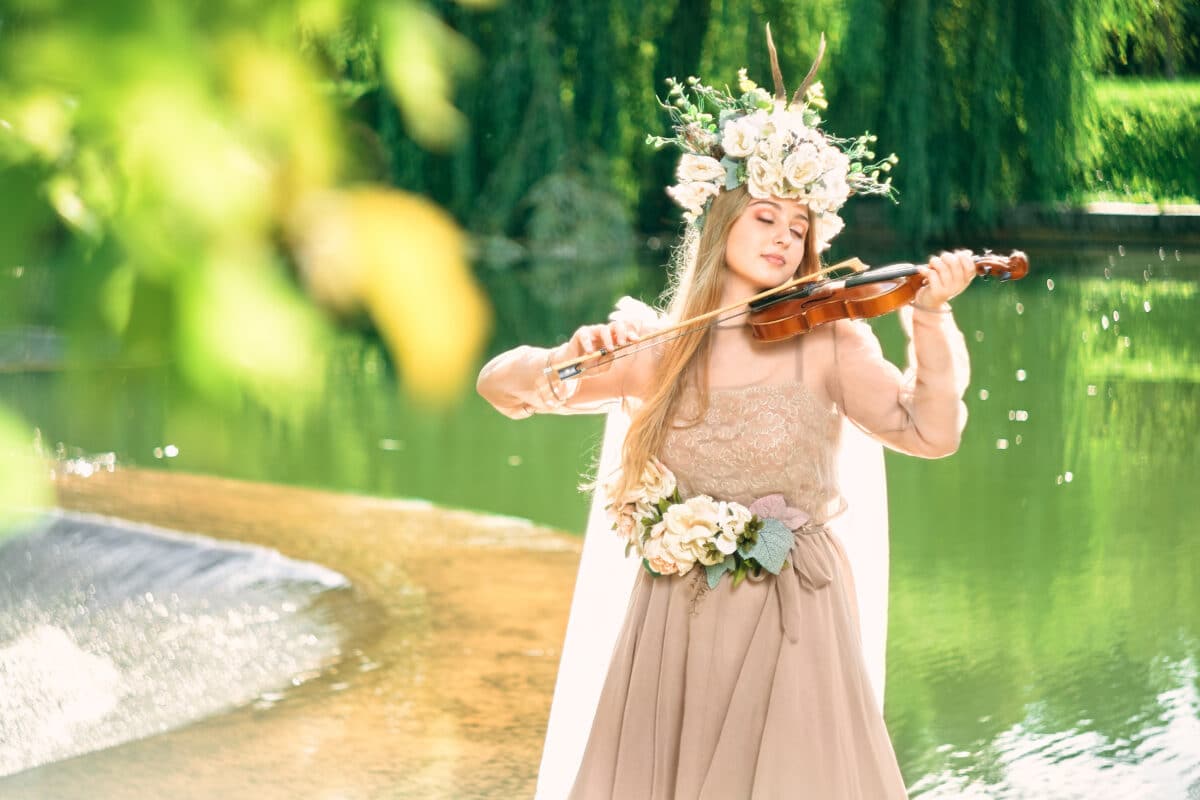
From the “Song of the Transvaal Irish Brigade” by Lady Augusta Gregory
The Cross swings low the, morn is near—
Now, comrades, fill up high;
The cannon’s voice will ring out clear
When morning lights the sky.
A toast we’ll drink together, boys,
Ere dawns the battle’s grey,
A toast to Ireland—dear old Ireland!—
Ireland far away!
Ireland far away! Ireland far away!
Health to Ireland—strength to Ireland!
Ireland, boys, hurrah!
Who told us that her cause was dead?
Who bade us bend the knee?
The slaves! Again she lifts her head—
Again she dare be free!
With gun in hand we take our stand!
For Ireland in the fray—
We fight for Ireland—dear old Ireland!
Ireland far away!
Ireland far away! Ireland far away!
We fight for Ireland—die for Ireland—
Ireland, boys, hurrah!
O Mother of the Wounded Breast!
O Mother of the Tears!
The sons you loved and trusted best
Have grasped their battle-spears.
From Shannon, Lagan, Liffey, Lee
On Afric’s soil to-day—
We strike for Ireland—brave old Ireland!—
Ireland far away!
Ireland far away! Ireland far away!
We smite for Ireland—brave old Ireland!—
Ireland, boys, hurrah!
“An Irish Toast” by Edwin C. Ranck
Here’s to dear Ould Ireland,
Here’s to the Irish lass,
Here’s to Dennis and Mike and Pat,
Here’s to the sparkling glass.
Here’s to the Irish copper,
He may be green all right,
But you bet he’s Mickie on the spot
Whenever it comes to a fight.
Here’s to Robert Emmet, too,
And here’s to our dear Tom Moore.
Here’s to the Irish shamrock,
Here’s to the land we adore.
“Ireland’s Vow” by Denis Florence MacCarthy
Come! Liberty, come! we are ripe for thy coming–
Come freshen the hearts where thy rival has trod–
Come, richest and rarest!–come, purest and fairest!–
Come, daughter of Science!–come, gift of the God!
Long, long have we sighed for thee, coyest of maidens–
Long, long have we worshipped thee, queen of the brave!
Steadily sought for thee, readily fought for thee,
Purpled the scaffold and glutted the grave!
On went the fight through the cycle of ages,
Never our battle-cry ceasing the while;
Forward, ye valiant ones! onward, battalioned ones!
Strike for your Erin, your own darling isle!
Still in the ranks are we, struggling with eagerness,
Still in the battle for Freedom are we!
Words may avail in it–swords if they fail in it,
What matters the weapon, if only we’re free?
Oh! we are pledged in the face of the universe,
Never to falter and never to swerve;
Toil for it!–bleed for it!–if there be need for it,
Stretch every sinew and strain every nerve!
Traitors and cowards our names shall be ever,
If for a moment we turn from the chase;
For ages exhibited, scoffed at, and gibbeted,
As emblems of all that was servile and base!
Irishmen! Irishmen! think what is Liberty,
Fountain of all that is valued and dear,
Peace and security, knowledge and purity,
Hope for hereafter and happiness here.
Nourish it, treasure it deep in your inner heart–
Think of it ever by night and by day;
Pray for it!–sigh for it!–work for it!–die for it!–
What is this life and dear freedom away?
List! scarce a sound can be heard in our thoroughfares–
Look! scarce a ship can be seen on our streams;
Heart-crushed and desolate, spell-bound, irresolute,
Ireland but lives in the bygone of dreams!
Irishmen! if we be true to our promises,
Nerving our souls for more fortunate hours,
Life’s choicest blessings, love’s fond caressings,
Peace, home, and happiness, all shall be ours!
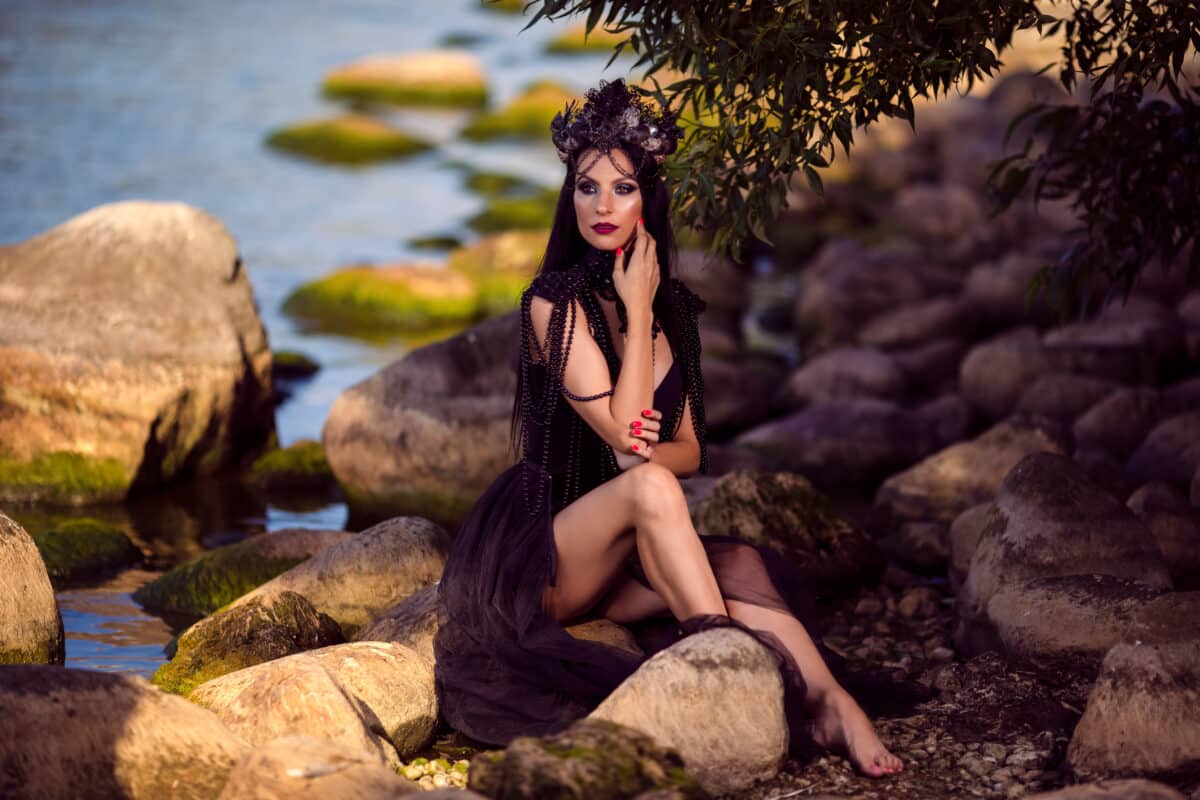
“The River Boyne” by Thomas D’Arcy McGee
Child of Loch Ramor, gently seaward stealing,
In thy placid depths hast thou no feeling
Of the stormy gusts of other days?
Does thy heart, O gentle, nun-faced river,
Passing Schomberg’s obelisk, not quiver,
While the shadow on thy bosom weighs?
Thou hast heard the sounds of martial clangor,
Seen fraternal forces clash in anger,
In thy Sabbath valley, River Boyne!
Here have ancient Ulster’s hardy forces
Dressed their ranks and fed their travelled horses,
Tara’s hosting as they rode to join.
Forgettest thou that silent summer morning
When William’s bugles sounded sudden warning
And James’s answered chivalrously clear?
When rank to rank gave the death-signal duly,
And volley answered volley quick and truly,
And shouted mandates met the eager ear?
The thrush and linnet fled beyond the mountains,
The fish in Inver Colpa sought their fountains,
The unchased deer scampered through Tredagh’s gates;
St. Mary’s bells in their high places trembled,
And made a mournful music which resembled
A hopeless prayer to the unpitying Fates.
Ah! well for Ireland had the battle ended
When James forsook what William well defended,
Crown, friends, and kingly cause;
Well, if the peace thy bosom bid recover
Had breathed its benediction broadly over
Our race and rites and laws.
Not in thy depths, not in thy fount, Loch Ramor!
Were brewed the bitter strife and cruel clamor
Our wisest long have mourned;
Foul faction falsely made thy gentle current
To Christian ears a stream and name abhorrent,
And all thy waters into poison turned.
But, as of old God’s prophet sweetened Mara,
Even so, blue bound of Ulster and of Tara,
Thy waters to our exodus gave life;
Thrice holy hands thy lineal foes have wedded,
And healing olives in thy breast embedded,
And banished far the littleness of strife.
Before thee we have made a solemn fœdus,
And for chief witness called on Him who made us,
Quenching before his eyes the brands of hate;
Our pact is made, for brotherhood and union,
For equal laws to class and to communion,—
Our wounds to stanch, our land to liberate.
Our trust is not in musket or in sabre,
Our faith is in the fruitfulness of labor,
The soul-stirred, willing soil;
In homes and granaries by justice guarded,
In fields from blighting winds and agents warded,
In franchised skill and manumitted toil.
Grant us, O God, the soil and sun and seasons!
Avert despair, the worst of moral treasons,
Make vaunting words be vile.
Grant us, we pray, but wisdom, peace, and patience,
And we will yet relift among the nations
Our fair and fallen, but unforsaken Isle!
“Lament of the Irish Emigrant” by Helen Selina, Lady Dufferin
I’m sitting on the stile, Mary,
Where we sat side by side,
On a bright morning long ago,
When first you were my bride.
The corn was springing fresh and green,
And the lark sang loud and high
And the red was on thy lip Mary
And the love light in your eye
And the red was on thy lip Mary
And the l ove light in your eye
The place is little change, Mary,
The day as bright as then;
The larks loud song is in my ear,
And the corn is green again!
But I miss the soft clasp of your hand,
And your breath warm on my cheek,
And I still keep list’ning for the words
You never more may speak,
And I still keep list’ning for the words
You never more may speak.
‘Tis but a step down yonder lane
And the little church stands near,
The church where we were wed, Mary,
I see the spire from here;
But the graveyard lies between, Mary,
And my step might break your rest,
For I’ve laid you, darling down to sleep,
With your baby on your breast,
For I’ve laid you, darling down to sleep,
With your baby on your breast,
I’m very lonely now, Mary,
For the poor make no new friends;
But Oh! they love the better far,
The few our Father sends!
And you were all I had, Mary,
My blessing and my pride;
There’s nothing left to care for now,
Since my poor Mary died!
Yours was the brave good heart, Mary,
That still kept hoping on,
When the trust in God had left my soul,
And my arm’s young strength had gone,
There was comfort ever on your lip,
And the kind look on your brow;
I bless you for that same, Mary,
Though you can’t hear me now.
I thank you for the patient smile,
When your heart was fit to break,
When the hunger pain was gnawing there,
And you hid it, for my sake!
I bless you for the pleasant word,
When your heart was and sore;
Oh! I’m thankful you are gone, Mary,
Where grief can’t reach you more.
I’m bidding you a long farewell,
My Mary, kind and true!
But I’ll not forget you, darling,
In the land I’m going to;
They say there’s bread and work for all,
And the sun shines always there;
But I’ll not forget old Ireland,
Were it fifty times as fair!
And often in those grand old woods
I’ll sit, and shut my eyes,
And my heart will travel back again
To the place where Mary lies;
And I’ll think I see the little stile
Where we sat side by side,
And the springing corn, and the bright May morn
When first you were my bride!
“Tipperary” by Thomas Davis
Let Britain boast her British hosts,
About them all right little care we;
Not British seas nor British coasts
Can match the Man of Tipperary!
Tall is his form, his heart is warm,
His spirit light as any fairy-
His wrath is fearful as the storm
That sweeps the Hills of Tipperary!
Lead him to fight for native land,
His is no courage cold and wary;
The troops live not on earth would stand
The headlong charge of Tipperary!
Yet meet him in his cabin rude,
Or dancing with his dark-haired Mary,
You’d swear they knew no other mood
But Mirth and Love in Tipperary!
You’re free to share his scanty meal,
His plighted word he’ll never vary-
In vain they tried with gold and steel
To shake the Faith of Tipperary!
Soft is his cailin’s sunny eye,
Her mien is mild, her step is airy,
Her heart is fond, her soul is high-
Oh! she’s the Pride of Tipperary!
Let Britain brag her motley rag;
We’ll lift the Green more proud and airy-
Be mine the lot to bear that flag,
And head the Men of Tipperary!
Though Britain boasts her British hosts,
About them all right little care we-
Give us, to guard our native coasts,
The matchless Men of Tipperary!
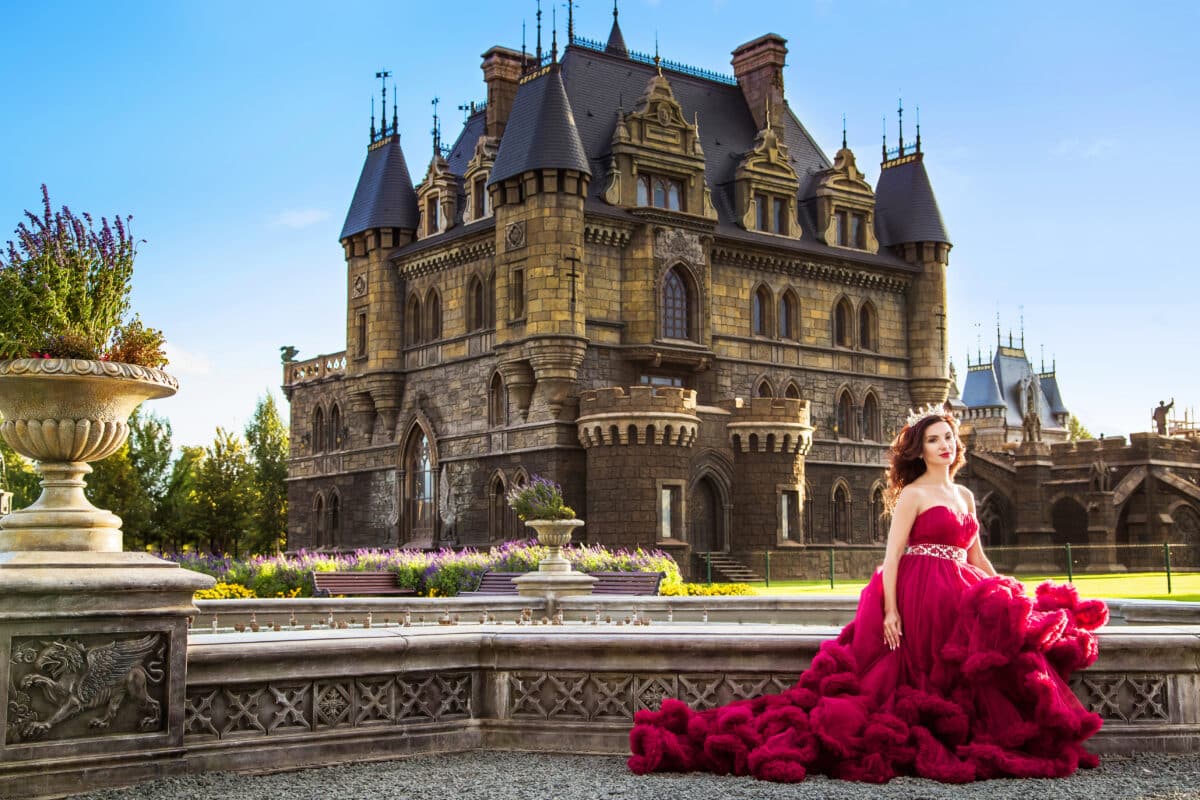
“To Kilbarron Castle” by Thomas D’Arcy McGee
Broad, blue, and deep, the Bay of Donegal
Spreads north and south and far a-west before
The beetling cliffs sublime, and shattered wall
Where the O’Clery’s name is known no more.
Kilbarron, many castle names are sung
In deathless verse they less deserved than thee,—
The Rhine-towers still endure in German tongue;
Gray Scotland’s keeps in Scottish poesy;
In chronicles of Spain, and songs of France,
Full many a grim château and fortress stands;
And Albion’s genius, strong as Uther’s lance,
Guards her old mansions mid their altered lands;
Home of an hundred annalists, round thy hearths, alas!
The churlish thistles thrive, and the dull graveyard grass.
“Old Ireland” by Walt Whitman
Far hence, amid an isle of wondrous beauty,
Crouching over a grave, an ancient, sorrowful mother,
Once a queen—now lean and tatter’d, seated on the ground,
Her old white hair drooping dishevel’d round her shoulders;
At her feet fallen an unused royal harp,
Long silent—she too long silent—mourning her shrouded hope and heir;
Of all the earth her heart most full of sorrow, because most full of love.
Yet a word, ancient mother;
You need crouch there no longer or the cold ground, with forehead between your knees;
O you need not sit there, veil’d in your old white hair, so dishevel’d;
For know you, the one you mourn is not in that grave;
It was an illusion—the heir, the son you love, was not really dead;
The Lord is not dead—he is risen again, young and strong, in another country;
Even while you wept there by your fallen harp, by the grave,
What you wept for, was translated, pass’d from the grave,
The winds favor’d, and the sea sail’d it,
And now with rosy and new blood,
Moves to-day in a new country.
“To the Landlords of Ireland” by Arthur M. Forrester
You tendered us when famine came
The pity of a thought,
Bestowed to slaves whose sense of shame
And hearts and souls you’d bought.
Time’s wheel turns round—you’ve lost your place,
And right into your tyrant face,
Your jibes and sneers
Of many years
At victims’ tears
Are thrown,
And in God’s name,
Our hearts aflame,
To-day we claim
Our own!
Once for ye, skulking, lazy elves,
Muscle and brain we wrought.
Toiled, starved, and died—scarce for ourselves
The crumbs of Lazarus sought;{142}
And when ye flung us out a crust,
Our faces grovelling in the dust,
We gave ye thanks—
No prize, all blanks
In our poor ranks
Was known;
But now, thank God,
We’ve spurned your rod,
And claim this sod
Our own!
We lift our faces to the sky
Where once our heads were bowed,
We breathe no more a timid sigh,
But speak our thoughts aloud.
From dizzy hill and peaceful plain
Our voices join in this refrain:
The seeds we sow,
The crops we grow,
The fields we mow,
Alone,
Without your aid
In cash or spade
At last are made
Our own!
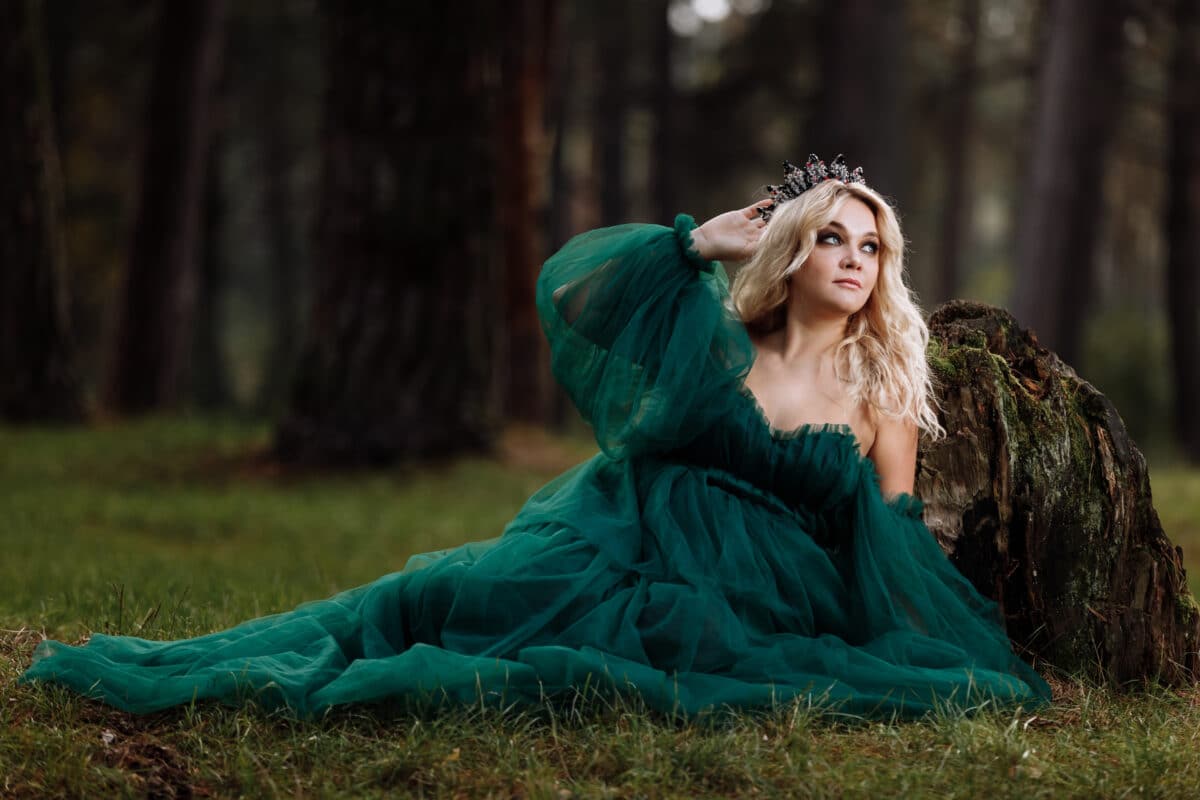
“As Ireland Wore The Green” by Henry Lawson
By right of birth in southern land I send my warning forth.
I see my country ruined by the wrongs that damned the North.
And shall I stand with fireless eyes and still and silent mouth
While Mammon builds his Londons on the fair fields of the South?
CHORUS:
O must we hide our colour
In fear of Mammon’s spleen?
Or shall we wear the bonnie blue
As Ireland wore the green?
As Ireland wore the green, my friends!
As Ireland wore the green!
Aye, we will wear our colour still,
As Ireland wore the green!
I see the shade of poverty fall on each sunny scene.
And slums and alley-ways extend where fields were evergreen.
There is a law that stamps the flower of freedom as it springs;
And this upon a soil that’s trod by prouder feet than kings’.
And must I hide my colour
In fear of Mammon’s spleen?
Or shall I wear the bonnie blue
As Ireland wore the green?
As Ireland wore the green, my friends!
As Ireland swore the green!
Aye, I will wear my colour yet,
As Ireland wore the green!
Out there beyond the lonely range our fathers toiled for years
‘Neath all the hardships that beset true-hearted pioneers;
And our brave mothers journeyed there to do the work of men
On those great awful plains that were unfit for women then.
Then must we hide our colour
In fear of Mammon’s spleen?
Or shall we wear the bonnie blue
As Ireland swore the green?
As Ireland wore the green, my friends!
As Ireland wore the green!
Aye, we shall wear our colour still,
As Ireland wore the green!
O shall the fields our fathers won be yielded to the few
Who never touched the axe or spade, and hardships never knew?
Shall lordly robbers rule the land and build their mansions high,
And ladies flaunt their jewelled plumes where our brave mothers lie?
O must we hide our colour
In fear of Mammnon’s spleen?
Or shall the wear the bonnie blue
As Ireland wore the green?
As Ireland wore the green, my friends!
As Ireland wore the green!
Aye, the will wear our colour yet,
As Ireland wore the green!
What though our stalwart fathers came from every land on earth,
We will be loyal to the land that gives our children birth.
We’ll show our banner to the sun — the Southern Cross displayed —
And join our strength together for the home our fathers made.
Let cowards hide their colour
For fear of Mammon’s spleen!
But I will wear my bonnie blue
As Ireland swore the green!
As Ireland swore the green, my friends!
As Ireland wore the green!
Aye, I will wear my colour still,
As Ireland swore the green!
We’ll light the lamp of hope above the alley and the slum,
And teach the poor and drill them for the war that is to come.
We’ll send our songs recruiting far beneath the western sky,
And wake the towns and let them know the day of deeds is nigh.
And the twill wear our colour
In spite of Mammon’s spleen!
O the will wear the bonnie blue
As Ireland wore the green!
As Ireland wore the green, my friends!
As Ireland wore the green!
Aye, the will wear our colour yet,
As Ireland wore the green!
“To God and Ireland True” by Ellen O’Leary
I sit beside my darling’s grave
Who in the prison died,
And though my tears fall thick and fast
I think of him with pride;
Ay, softly fall my tears like dew
For one to God and Ireland true.
“I love my God o’er all,” he said,
“And then I love my land,
And next I love my Lily sweet
Who pledged me her white hand;
To each, to all, I’m ever true,
To God, to Ireland, and to you.”
No tender nurse his hard bed smoothed,
Or softly raised his head;
He fell asleep and woke in heaven
Ere I knew he was dead;
Yet why should I my darling rue?
He was to God and Ireland true.
Oh, ’tis a glorious memory;
I’m prouder than a queen
To sit beside my hero’s grave
And think on what has been:
And oh, my darling, I am true
To God, to Ireland, and to you!
“St. Patrick Of Ireland, My Dear!” by William Maginn
A fig for St. Denis of France,
He’s a trumpery fellow to brag on;
A fig for St. George and his lance,
Which spitted a heathenish dragon;
And the saints of the Welshman or Scot
Are a couple of pitiful pipers,
Both of whom may just travel to pot,
Compared with that patron of swipers,
St. Patrick of Ireland, my dear!
He came to the Emerald Isle
On a lump of a paving-stone mounted;
The steamboat he beat by a mile,
Which mighty good sailing was counted.
Says he, “The salt water, I think,
Has made me most bloodily thirsty;
So bring me a flagon of drink
To keep down the mulligrubs, burst ye!
Of drink that is fit for a saint!”
He preached, then, with wonderful force,
The ignorant natives a-teaching;
With a pint he washed down his discourse,
“For,” says he, “I detest your dry preaching.”
The people, with wonderment struck
At a pastor so pious and civil,
Exclaimed, “We’re for you, my old buck!
And we pitch our blind gods to the devil,
Who dwells in hot water below!”
This ended, our worshipful spoon
Went to visit an elegant fellow,
Whose practice, each cool afternoon,
Was to get most delightfully mellow.
That day with a black-jack of beer,
It chanced he was treating a party;
Says the saint, “This good day, do you hear,
I drank nothing to speak of, my hearty!
So give me a pull at the pot!”
The pewter he lifted in sport
(Believe me, I tell you no fable);
A gallon he drank from the quart,
And then placed it full on the table.
“A miracle!” every one said,
And they all took a haul at the stingo;
They were capital hands at the trade,
And drank till they fell; yet, by jingo,
The pot still frothed over the brim.
Next day, quoth his host, “‘Tis a fast,
And I’ve nought in my larder but mutton;
And on Fridays who’d made such repast,
Except an unchristian-like glutton?”
Says Pat, “Cease your nonsense, I beg,
What you tell me is nothing but gammon;
Take my compliments down to the leg,
And bid it come hither a salmon!”
And the leg most politely complied.
You’ve heard, I suppose, long ago,
How the snakes, in a manner most antic,
He marched to the county Mayo,
And trundled them into th’ Atlantic.
Hence, not to use water for drink,
The people of Ireland determine,
With mighty good reason, I think,
Since St. Patrick has filled it with vermin
And vipers, and other such stuff!
Oh, he was an elegant blade
As you’d meet from Fairhead to Kilcrumper;
And though under the sod he is laid,
Yet here goes his health in a bumper!
I wish he was here, that my glass
He might by art magic replenish;
But since he is not, why, alas!
My ditty must come to a finish,
Because all the liquor is out!
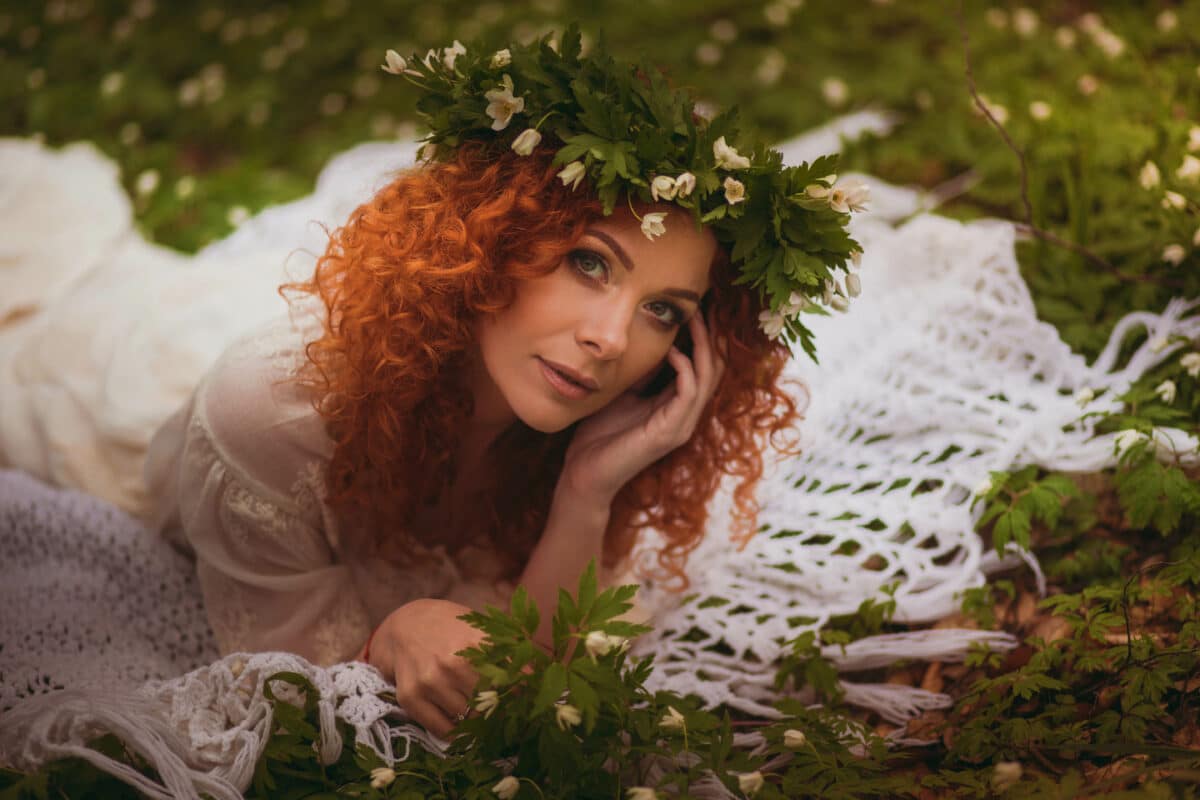
“The Eyes That Come From Ireland” by Richard Le Gallienne
Don’t you love the eyes that come from Ireland?
The grey-blue eyes so strangely grey and blue,
The fighting loving eyes,
The eyes that tell no lies –
Don’t you love the eyes that come from Ireland?
Don’t you love the eyes that come from Ireland?
The dreaming mocking eyes that see you through,
The eyes that smile and smile,
With the heart-break all the while, –
Don’t you love the eyes that come from Ireland?
Don’t you love the eyes that come from Ireland?
The eyes that hate of England made so blue,
The mystic eyes that see
More than Saxon you and me –
Don’t you love the eyes that come from Ireland?
“Ireland” by John James Piatt
A great, still Shape, alone,
She sits (her harp has fallen) on the sand,
And sees her children, one by one, depart:—
Her cloak (that hides what sins beside her own!)
Wrapped fold on fold about her. Lo,
She comforts her fierce heart,
As wailing some, and some gay-singing go,
With the far vision of that Greater Land
Deep in the Atlantic skies,
St. Brandan’s Paradise!
Another Woman there,
Mighty and wondrous fair,
Stands on her shore-rock:—one uplifted hand
Holds a quick-piercing light
That keeps long sea-ways bright;
She beckons with the other, saying “Come,
O landless, shelterless,
Sharp-faced with hunger, worn with long distress:—
Come hither, finding home!
Lo, my new fields of harvest, open, free,
By winds of blessing blown,
Whose golden corn-blades shake from sea to sea—
Fields without walls that all the people own!”
“To Ireland” by Percy Bysshe Shelley
I.
Bear witness, Erin! when thine injured isle
Sees summer on its verdant pastures smile,
Its cornfields waving in the winds that sweep
The billowy surface of thy circling deep!
Thou tree whose shadow o’er the Atlantic gave
Peace, wealth and beauty, to its friendly wave, its blossoms fade,
And blighted are the leaves that cast its shade;
Whilst the cold hand gathers its scanty fruit,
Whose chillness struck a canker to its root.
II.
I could stand
Upon thy shores, O Erin, and could count
The billows that, in their unceasing swell,
Dash on thy beach, and every wave might seem
An instrument in Time the giant’s grasp,
To burst the barriers of Eternity.
Proceed, thou giant, conquering and to conquer;
March on thy lonely way! The nations fall
Beneath thy noiseless footstep; pyramids
That for millenniums have defied the blast,
And laughed at lightnings, thou dost crush to nought.
Yon monarch, in his solitary pomp,
Is but the fungus of a winter day
That thy light footstep presses into dust.
Thou art a conqueror, Time; all things give way
Before thee but the ‘fixed and virtuous will’;
The sacred sympathy of soul which was
When thou wert not, which shall be when thou perishest.
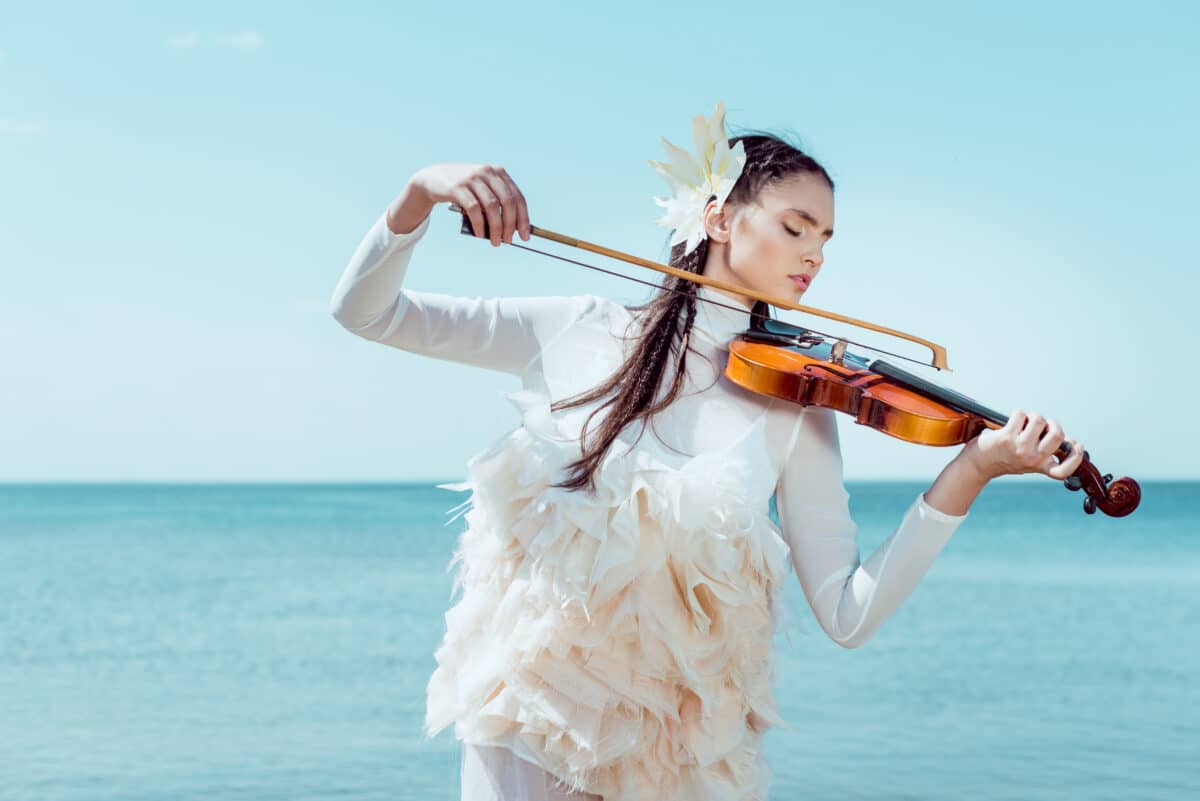
“Red Hanrahan’s Song About Ireland” by William Butler Yeats
The old brown thorn-trees break in two high over Cummen Strand,
Under a bitter black wind that blows from the left hand;
Our courage breaks like an old tree in a black wind and dies,
But we have hidden in our hearts the flame out of the eyes
Of Cathleen, the daughter of Houlihan.
The wind has bundled up the clouds high over Knock- narea,
And thrown the thunder on the stones for all that Maeve can say.
Angers that are like noisy clouds have set our hearts abeat;
But we have all bent low and low and kissed the quiet feet
Of Cathleen, the daughter of Houlihan.
The yellow pool has overflowed high up on Clooth-na-Bare,
For the wet winds are blowing out of the clinging air;
Like heavy flooded waters our bodies and our blood;
But purer than a tall candle before the Holy Rood
Is Cathleen, the daughter of Houlihan.
“Orange And Green Will Carry The Day” by Thomas Osborne Davis
I.
Ireland! rejoice, and England! deplore–
Faction and feud are passing away.
‘Twas a low voice, but ’tis a loud roar,
‘Orange and Green will carry the day.’
Orange! Orange!
Green and Orange!
Pitted together in many a fray–
Lions in fight!
And linked in their might,
Orange and Green will carry the day.
Orange! Orange!
Green and Orange!
Wave them together o’er mountain and bay.
Orange and Green!
Our King and our Queen!
‘Orange and Green will carry the day!’
II.
Rusty the swords our fathers unsheathed–
William and James are turned to clay–
Long did we till the wrath they bequeathed,
Red was the crop, and bitter the pay!
Freedom fled us!
Knaves misled us!
Under the feet of the foemen we lay–
Riches and strength
We’ll win them at length,
For Orange and Green will carry the day!
Landlords fooled us;
England ruled us,
Hounding our passions to make us their prey;
But, in their spite,
The Irish UNITE,
And Orange and Green will carry the day!
III.
Fruitful our soil where honest men starve;
Empty the mart, and shipless the bay;
Out of our want the Oligarchs carve;
Foreigners fatten on our decay!
Disunited,
Therefore blighted,
Ruined and rent by the Englishman’s sway;
Party and creed
For once have agreed–
Orange and Green will carry the day!
Boyne’s old water,
Red with slaughter!
Now is as pure as an infant at play;
So, in our souls,
Its history rolls,
And Orange and Green will carry the day!
IV.
English deceit can rule us no more;
Bigots and knaves are scattered like spray–
Deep was the oath the Orangeman swore,
‘Orange and Green must carry the day!’
Orange! Orange!
Bless the Orange!
Tories and Whigs grew pale with dismay,
When from the North
Burst the cry forth,
‘Orange and Green will carry the day!’
No surrender!
No Pretender!
Never to falter and never betray–
With an Amen,
We swear it again,
ORANGE AND GREEN SHALL CARRY THE DAY.
“To Ireland In The Coming Times” by William Butler Yeats
Know, that I would accounted be
True brother of a company
That sang, to sweeten Ireland’s wrong,
Ballad and story, rann and song;
Nor be I any less of them,
Because the red-rose-bordered hem
Of her, whose history began
Before God made the angelic clan,
Trails all about the written page.
When Time began to rant and rage
The measure of her flying feet
Made Ireland’s heart begin to beat;
And Time bade all his candles flare
To light a measure here and there;
And may the thoughts of Ireland brood
Upon a measured quietude.
Nor may I less be counted one
With Davis, Mangan, Ferguson,
Because, to him who ponders well,
My rhymes more than their rhyming tell
Of things discovered in the deep,
Where only body’s laid asleep.
For the elemental creatures go
About my table to and fro,
That hurry from unmeasured mind
To rant and rage in flood and wind,
Yet he who treads in measured ways
May surely barter gaze for gaze.
Man ever journeys on with them
After the red-rose-bordered hem.
Ah, faerics, dancing under the moon,
A Druid land, a Druid tune.!
While still I may, I write for you
The love I lived, the dream I knew.
From our birthday, until we die,
Is but the winking of an eye;
And we, our singing and our love,
What measurer Time has lit above,
And all benighted things that go
About my table to and fro,
Are passing on to where may be,
In truth’s consuming ecstasy,
No place for love and dream at all;
For God goes by with white footfall.
I cast my heart into my rhymes,
That you, in the dim coming times,
May know how my heart went with them
After the red-rose-bordered hem.
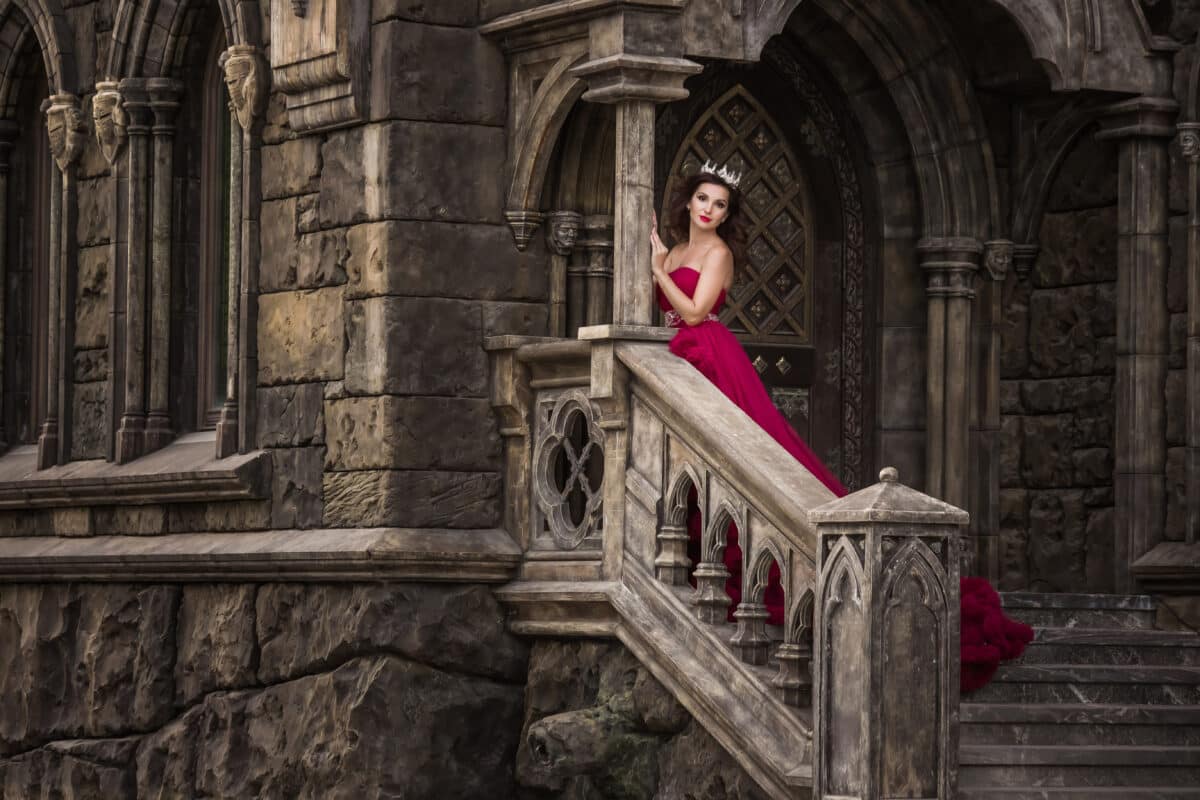
“The Pillar Towers of Ireland” by Denis Florence MacCarthy
The pillar towers of Ireland, how wondrously they stand
By the lakes and rushing rivers through the valleys of our land;
In mystic file, through the isle, they lift their heads sublime,
These gray old pillar temples, these conquerors of time!
Beside these gray old pillars, how perishing and weak
The Roman’s arch of triumph, and the temple of the Greek,
And the gold domes of Byzantium, and the pointed Gothic spires,
All are gone, one by one, but the temples of our sires!
The column, with its capital, is level with the dust,
And the proud halls of the mighty and the calm homes of the just;
For the proudest works of man, as certainly, but slower,
Pass like the grass at the sharp scythe of the mower!
But the grass grows again when in majesty and mirth,
On the wing of the spring, comes the Goddess of the Earth;
But for man in this world no springtide e’er returns
To the labours of his hands or the ashes of his urns!
Two favourites hath Time–the pyramids of Nile,
And the old mystic temples of our own dear isle;
As the breeze o’er the seas, where the halcyon has its nest,
Thus Time o’er Egypt’s tombs and the temples of the West!
The names of their founders have vanished in the gloom,
Like the dry branch in the fire or the body in the tomb;
But to-day, in the ray, their shadows still they cast–
These temples of forgotten gods–these relics of the past!
Around these walls have wandered the Briton and the Dane–
The captives of Armorica, the cavaliers of Spain–
Phœnician and Milesian, and the plundering Norman Peers–
And the swordsmen of brave Brian, and the chiefs of later years!
How many different rites have these gray old temples known!
To the mind what dreams are written in these chronicles of stone!
What terror and what error, what gleams of love and truth,
Have flashed from these walls since the world was in its youth?
Here blazed the sacred fire, and, when the sun was gone,
As a star from afar to the traveller it shone;
And the warm blood of the victim have these gray old temples drunk,
And the death-song of the druid and the matin of the monk.
Here was placed the holy chalice that held the sacred wine,
And the gold cross from the altar, and the relics from the shrine,
And the mitre shining brighter with its diamonds than the East,
And the crosier of the pontiff and the vestments of the priest.
Where blazed the sacred fire, rung out the vesper bell,
Where the fugitive found shelter, became the hermit’s cell;
And hope hung out its symbol to the innocent and good,
For the cross o’er the moss of the pointed summit stood.
There may it stand for ever, while that symbol doth impart
To the mind one glorious vision, or one proud throb to the heart;
While the breast needeth rest may these gray old temples last,
Bright prophets of the future, as preachers of the past!
“Easter Week” by Alfred Joyce Kilmer
“Romantic Ireland’s dead and gone,
It’s with O’Leary in the grave.”
Then, Yeats, what gave that Easter dawn
A hue so radiantly brave?
There was a rain of blood that day,
Red rain in gay blue April weather.
It blessed the earth till it gave birth
To valour thick as blooms of heather.
Romantic Ireland never dies!
O’Leary lies in fertile ground,
And songs and spears throughout the years
Rise up where patriot graves are found.
Immortal patriots newly dead
And ye that bled in bygone years,
What banners rise before your eyes?
What is the tune that greets your ears?
The young Republic’s banners smile
For many a mile where troops convene.
O’Connell street is loudly sweet
With strains of Wearing of the Green.
The soil of Ireland throbs and glows
With life that knows the hour is here
To strike again like Irishmen
For that which Irishmen hold dear.
Lord Edward leaves his resting place
And Sarsfield’s face is glad and fierce.
See Emmet leap from troubled sleep
To grasp the hand of Padraic Pearse!
There is no rope can strangle song
And not for long death takes his toll.
No prison bars can dim the stars
Nor quicklime eat the living soul.
Romantic Ireland is not old.
For years untold her youth shall shine.
Her heart is fed on Heavenly bread,
The blood of martyrs is her wine.
“Ireland Shall Rebel” by Henry Lawson
While tyrants rule the land,
Beneath the Irish skies;
While e’er the iron hand
Upon our people lies;
While sons are driven forth
In other lands to dwell,
Still in the South and North
Old Ireland will rebel!
Rebel, rebel!
Old Ireland will rebel!
While fanlike from below,
And pale against the skies,
That light of shame—the glow
Of burning homes—shall rise;
While hot indignant tears
From Irish hearts shall swell:—
Be it a thousand years,
Old Ireland will rebel!
Rebel, rebel!
Old Ireland will rebel!
Until the tyrant’s rod
Shall broken be in twain,
And on the dear old sod
Blest freedom treads again;
Or till our masters learn
To rule our country well,
The fires of hate shall burn!—
Old Ireland will rebel!
Rebel, rebel!
Old Ireland will rebel!
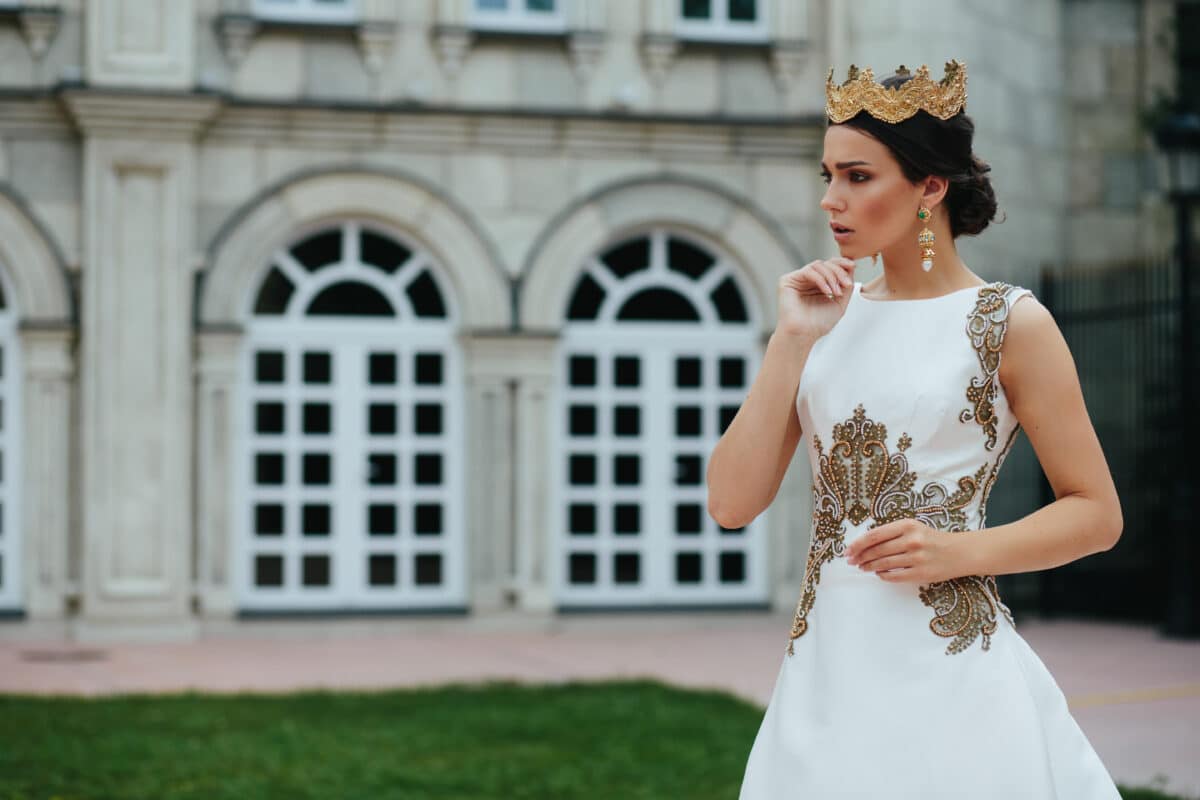
“Have We Done Well for Ireland” by Jane Francesca Agnes Wild
O Country, writhing in thy chain
With fierce, wild efforts to be free,
Not seeing that with every strain
The bonds close firmer over thee;
Or grasping blindly in thy hate
The temple pillars of the State,
To hurl them down on friend and foe,
Crushed in one common overthrow
Can none of all thy Poet band
Preach nobler aims, loved Ireland?
As David drove with magic chords
The Evil Spirit back to night;
As Moses by his mighty words
Led Egypt’s bondmen up to light;
Hast thou no Poet, strong to calm
Thy troubled soul with holy psalm?
Or trusted Chief, who, safely on
Across the fatal Rubicon,
Could lead thee with pure heart and hand
To Freedom—my own Ireland?
By those doomed men, in dull despair
Slow wasting in a dungeon’s gloom;
By all youth’s fiery heart can dare
Quenched in the prison’s living tomb—
By the corroding felon chain,
That tortures with Promethean pain
Of vultures gnawing at the core
Of their lost lives for evermore—
I ask you, People of our Land,
Have ye done well for Ireland?
By History traced on dungeon walls,
By scaffolds, chains, and exiles’ tears,
Slow marking, as the shadow falls,
The mournful sequence of the years;
By genius crushed and progress barred,
By noble aspirations marred,
Till with a smouldering fire’s life
They burn in deadly hate and strife—
I ask you, Rulers of our Land,
Have ye done well for Ireland?
O Men! these men are brothers too,
Tho’ frenzied by a fatal dream,
Their living souls were meant to do
Some noble work in God’s great scheme,
Perchance to hew down, branch and root,
The tree that bore such bitter fruit;
But, left unguided in the Right,
They grope out blindly in the night
Of their dark passions; striking down
Their Country’s proud hopes with their own.
But now, ye say, the Land hath rest—
Aye, with the death weights on her eyes;
And fettered arms across her breast,
And mail’d hands stifling down her cries.
So rests a corpse within the grave
O’er which the charnal grasses wave.
Oh, better far some kindly word
To stay the vengeance-lifted sword,
Or Love, with queenly, outstretched hand,
To soothe thee—fated Ireland!
“The Origin of Ireland” by Anonymous
With due condescension, I’d call your attention
To what I shall mention of Erin so green,
And without hesitation I will show how that nation
Became of creation the gem and the queen.
‘Twas early one morning, without any warning,
That Vanus was born in the beautiful say,
And by the same token, and sure ’twas provoking,
Her pinions were soaking and wouldn’t give play.
Old Neptune, who knew her, began to pursue her,
In order to woo her, the wicked old Jew,
And almost had caught her atop of the water,
Great Jupiter’s daughter! which never would do.
But Jove, the great janius, looked down and saw Vanus,
And Neptune so heinous pursuing her wild,
And he spoke out in thunder, he’d rend him asunder,
And sure ’twas no wonder, for tazing his child.
A star that was flying hard by him espying,
He caught with small trying, and down let it snap;
It fell quick as winking, on Neptune a-sinking,
And gave him, I’m thinking, a bit of a rap.
That star it was dry land, both low land and high land,
And formed a sweet island, the land of my birth;
Thus plain is the story, that sent down from glory,
Old Erin asthore as the gem of the earth!
Upon Erin nately jumped Vanus so stately,
But fainted, kase lately so hard she was pressed,
Which much did bewilder, but ere it had killed her
Her father distilled her a drop of the best.
That sup was victorious, it made her feel glorious,
A little uproarious, I fear it might prove,
So how can you blame us that Ireland’s so famous
For drinking and beauty, for fighting and love?
“Ireland” by Sidney Lanier
Heartsome Ireland, winsome Ireland,
Charmer of the sun and sea,
Bright beguiler of old anguish,
How could Famine frown on thee?
As our Gulf-Stream, drawn to thee-ward,
Turns him from his northward flow,
And our wintry western headlands
Send thee summer from their snow,
Thus the main and cordial current
Of our love sets over sea, —
Tender, comely, valiant Ireland,
Songful, soulful, sorrowful Ireland, —
Streaming warm to comfort thee.
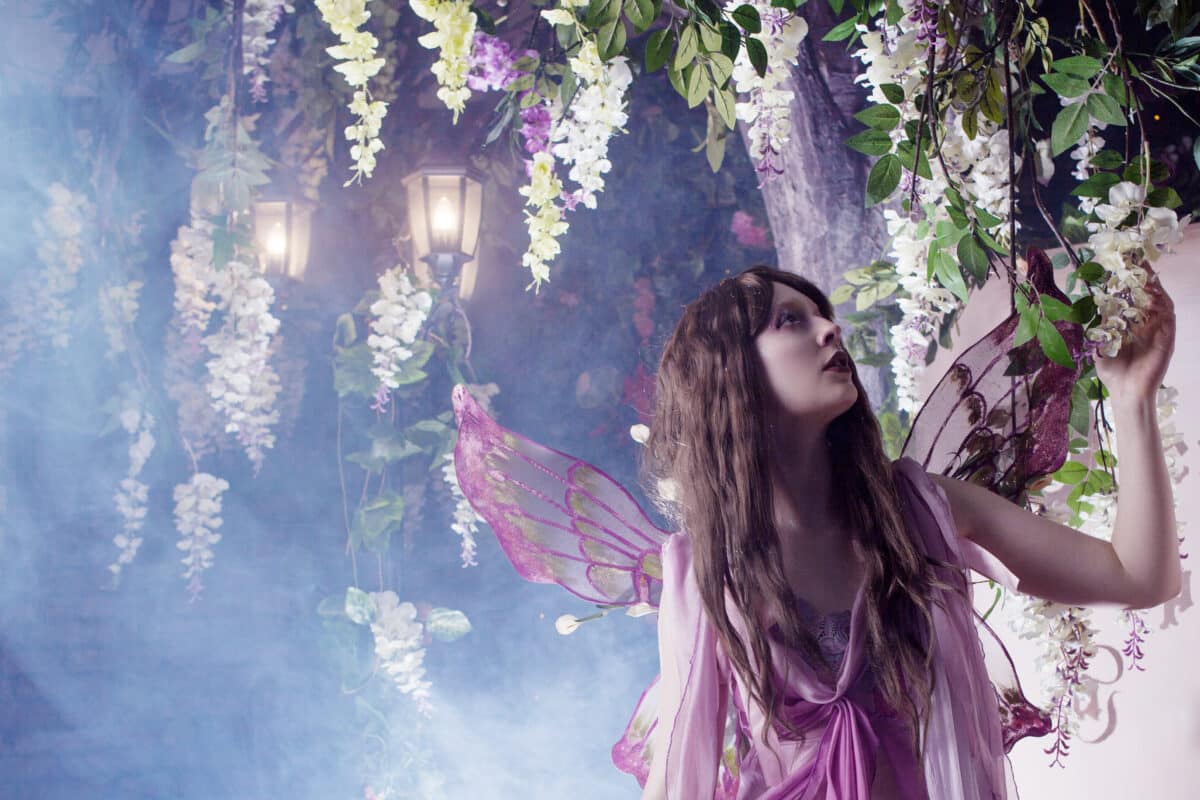
“Ireland” by Francis Ledwidge
I called you by sweet names by wood and linn,
You answered not because my voice was new,
And you were listening for the hounds of Finn
And the long hosts of Lugh.
And so, I came unto a windy height
And cried my sorrow, but you heard no wind,
For you were listening to small ships in flight,
And the wail on hills behind.
And then I left you, wandering the war
Armed with will, from distant goal to goal,
To find you at the last free as of yore,
Or die to save your soul.
And then you called to us from far and near
To bring your crown from out the deeps of time,
It is my grief your voice I couldn’t hear
In such a distant clime.
“Sojourn in the Whale” by Marianne Moore
Trying to open locked doors with a sword, threading
the points of needles, planting shade trees
upside down; swallowed by the opaqueness of one whom the seas
love better than they love you, Ireland—
you have lived and lived on every kind of shortage.
You have been compelled by hags to spin
gold thread from straw and have heard men say:
“There is a feminine temperament in direct contrast to ours,
which makes her do these things. Circumscribed by a
heritage of blindness and native
incompetence, she will become wise and will be forced to give in.
Compelled by experience, she will turn back;
water seeks its own level”;
and you have smiled. “Water in motion is far
from level.” You have seen it, when obstacles happened to bar
the path, rise automatically.
“The Shan Van Vocht” by Anonymous
O! the French are on the sea,
Says the shan van vocht;
The French are on the sea,
Says the shan van vocht;
O! the French are in the bay,
They’ll be here without delay,
And the Orange will decay,
Says the shan van vocht.
Chorus.
O! the French are in the bay,
They’ll be here by break of day,
And the Orange will decay,
Says the shan van vocht.
And their camp it shall be where?
Says the shan van vocht;
Their camp it shall be where?
Says the shan van vocht;
On the Currach of Kildare,
The boys they will be there,
With their pikes in good repair,
Says the shan van vocht.
To the Currach of Kildare
The boys they will repair,
And Lord Edward will be there,
Says the shan van vocht.
Then what will the yeomen do?
Says the shan van vocht;
What will the yeomen do?
Says the shan van vocht;
What should the yeomen do
But throw off the red and blue,
And swear that they’ll be true
To the shan van vocht?
What should the yeomen do
But throw off the red and blue,
And swear that they’ll be true
To the shan van vocht?
And what colour will they wear?
Says the shan van vocht;
What colour will they wear?
Says the shan van vocht;
What colour should be seen
Where our fathers’ homes have been,
But our own immortal Green?
Says the shan van vocht.
What colour should be seen
Where our fathers’ homes have been,
But our own immortal Green?
Says the shan van vocht.
And will Ireland then be free?
Says the shan van vocht;
Will Ireland then be free?
Says the shan van vocht;
Yes! Ireland SHALL be free,
From the centre to the sea;
Then hurra! for Liberty!
Says the shan van vocht.
Yes! Ireland SHALL be free,
From the centre to the sea;
Then hurra! for Liberty!
Says the shan van vocht.

“Easter” by William Butler Yeats
I have met them at close of day
Coming with vivid faces
From counter or desk among grey
Eighteenth-century houses.
I have passed with a nod of the head
Or polite meaningless words,
Or have lingered awhile and said
Polite meaningless words,
And thought before I had done
Of a mocking tale or a gibe
To please a companion
Around the fire at the club,
Being certain that they and I
But lived where motley is worn:
All changed, changed utterly:
A terrible beauty is born.
That woman’s days were spent
In ignorant good-will,
Her nights in argument
Until her voice grew shrill.
What voice more sweet than hers
When, young and beautiful,
She rode to harriers?
This man had kept a school
And rode our winged horse;
This other his helper and friend
Was coming into his force;
He might have won fame in the end,
So sensitive his nature seemed,
So daring and sweet his thought.
This other man I had dreamed
A drunken, vainglorious lout.
He had done most bitter wrong
To some who are near my heart,
Yet I number him in the song;
He, too, has resigned his part
In the casual comedy;
He, too, has been changed in his turn,
Transformed utterly:
A terrible beauty is born.
Hearts with one purpose alone
Through summer and winter seem
Enchanted to a stone
To trouble the living stream.
The horse that comes from the road.
The rider, the birds that range
From cloud to tumbling cloud,
Minute by minute they change;
A shadow of cloud on the stream
Changes minute by minute;
A horse-hoof slides on the brim,
And a horse plashes within it;
The long-legged moor-hens dive,
And hens to moor-cocks call;
Minute by minute they live:
The stone’s in the midst of all.
Too long a sacrifice
Can make a stone of the heart.
O when may it suffice?
That is Heaven’s part, our part
To murmur name upon name,
As a mother names her child
When sleep at last has come
On limbs that had run wild.
What is it but nightfall?
No, no, not night but death;
Was it needless death after all?
For England may keep faith
For all that is done and said.
We know their dream; enough
To know they dreamed and are dead;
And what if excess of love
Bewildered them till they died?
I write it out in a verse,
MacDonagh and MacBride
And Connolly and Pearse
Now and in time to be,
Wherever green is worn,
Are changed, changed utterly:
A terrible beauty is born.
“At Currabwee” by Francis Ledwidge
Every night at Currabwee
Little men with leather hats
Mend the boots of Faery
From the tough wings of the bats.
So my mother told to me,
And she is wise you will agree.
Louder than a cricket’s wing
All night long their hammer’s glee
Times the merry songs they sing
Of Ireland glorious and free.
So I heard Joseph Plunkett say,
You know he heard them but last May.
And when the night is very cold
They warm their hands against the light
Of stars that make the waters gold
Where they are labouring all the night.
So Pearse said, and he knew the truth,
Among the stars he spent his youth.
And I, myself, have often heard
Their singing as the stars went by,
For am I not of those who reared
The banner of old Ireland high,
From Dublin town to Turkey’s shores,
And where the Vardar loudly roars?
“The Harp That Once Thro’ Tara’s Halls” by Thomas Moore
The harp that once through Tara’s halls
The soul of music shed,
Now hangs as mute on Tara’s walls,
As if that soul were fled. —
So sleeps the pride of former days,
So glory’s thrill is o’er,
And hearts, that once beat high for praise,
Now feel that pulse no more.
No more to chiefs and ladies bright
The harp of Tara swells;
The chord alone, that breaks at night,
Its tale of ruin tells.
Thus Freedom now so seldom wakes,
The only throb she gives,
Is when some heart indignant breaks,
To show that still she lives.
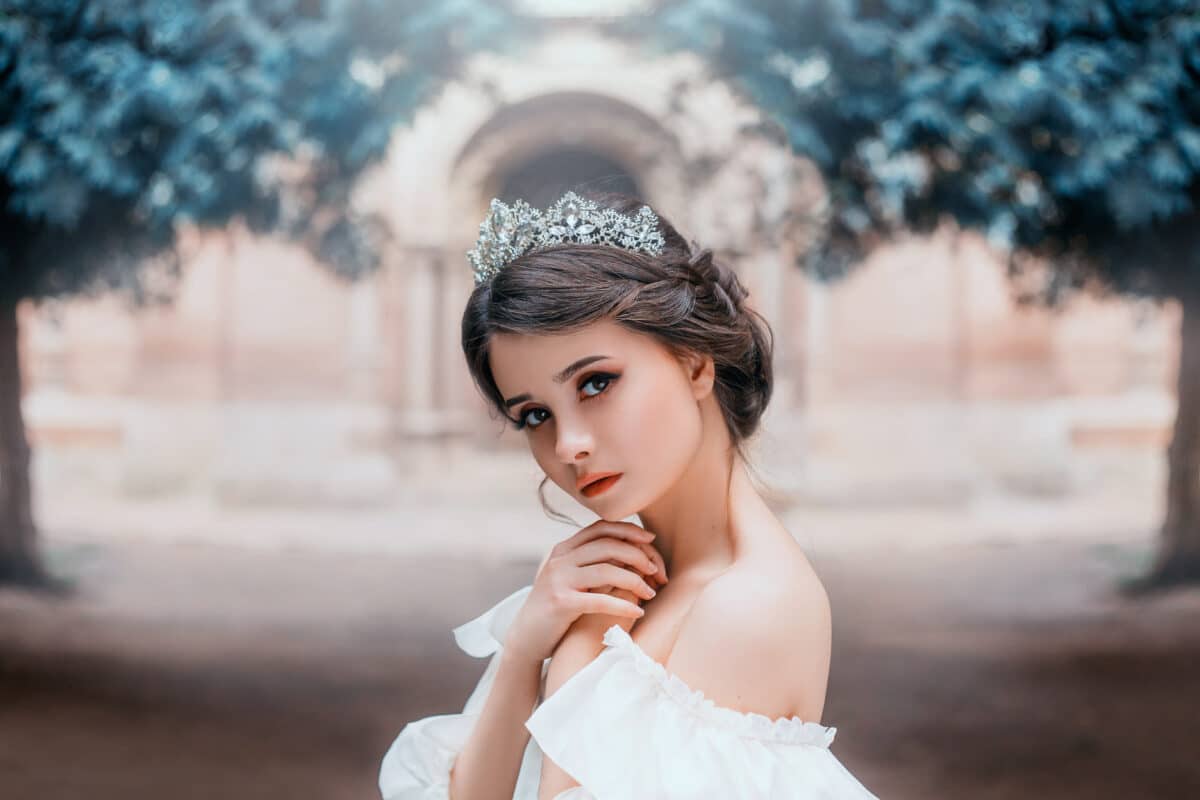
“Rich And Rare Were The Gems She Wore” by Thomas Moore
Rich and rare were the gems she wore,
And a bright gold ring on her wand she bore;
But oh! her beauty was far beyond
Her sparkling gems, or snow-white wand.
“Lady! dost thou not fear, to stray,
“So lone and lovely through this bleak way?
“Are Erin’s sons so good or so cold,
“As not to be tempted by woman or gold?”
“Sir Knight! I feel not the least alarm,
“No son of Erin will offer me harm:–
“For though they love woman and golden store,
“Sir Knight! they love honor and virtue more!”
On she went and her maiden smile
In safety lighted her round the green isle;
And blest for ever is she who relied
Upon Erin’s honor, and Erin’s pride.
“Mother Ireland” by Arthur Stringer
A true and dark-eyed Mother Land, ye’ve mourned thim day be day,
The childer’ av your achin’ breast who’ve fared a world away!
Be moorland and be lough and whin, ye’ve mourned for all your lost,
But still ye’ve smiled and still ye’ve watched and counted not the cost!
And dark, in faith, the ould hours fell and cold the ashes grew,
But Ireland, Mother Ireland, still ye’ve waited fond and thrue;
And now the Night has vanished, wid the sorrows it has known,
We’ll hear the call av Ireland, lads, av Ireland to her own!
Poems About Ireland’s Beauty
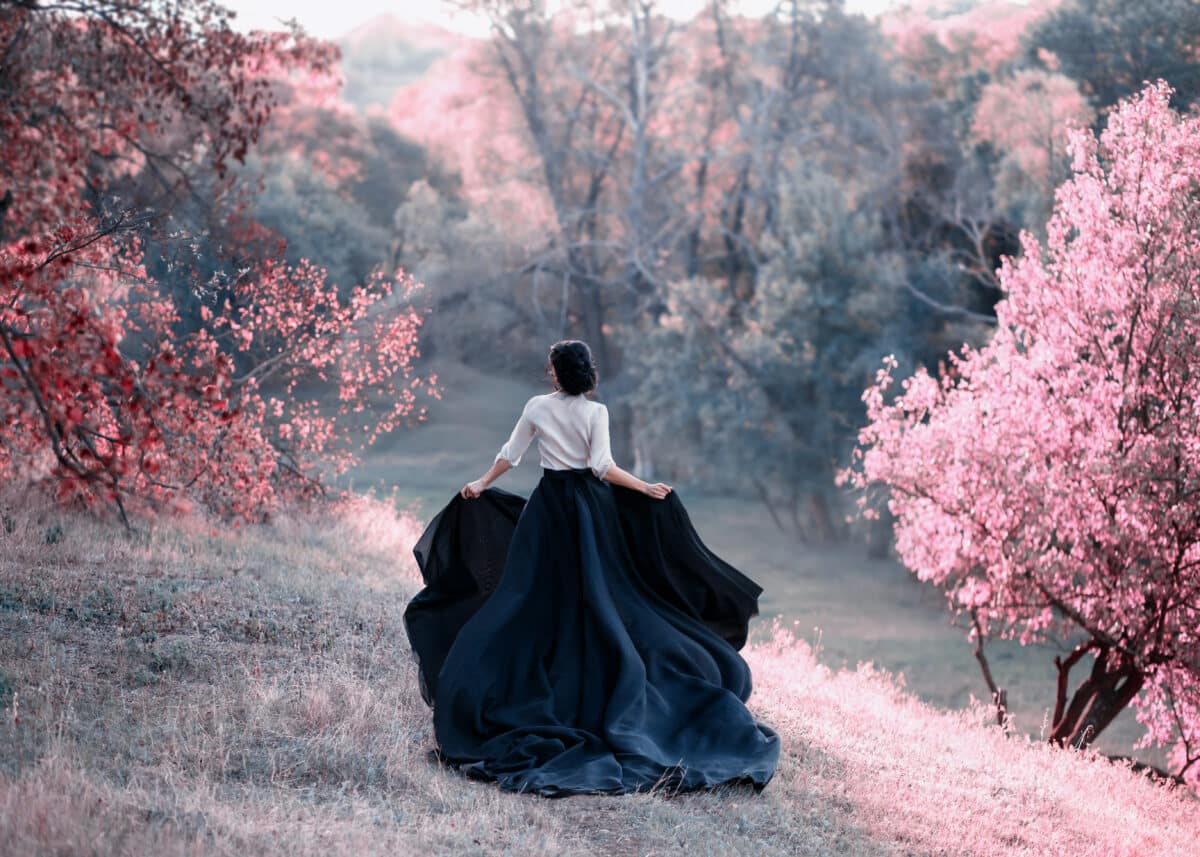
“The Fair Hills of Ireland” by Sir Samuel Ferguson
A Plenteous place is Ireland for hospitable cheer,
Uileacan dubh O!
Where the wholesome fruit is bursting from the yellow barley ear;
Uileacan dubh O!
There is honey in the trees where her misty vales expand,
And her forest paths in summer are by falling waters fann’d,
There is dew at high noontide there, and springs i’ the yellow sand,
On the fair hills of holy Ireland.
Curl’d he is and ringleted, and plaited to the knee–
Uileacan dubh O!
Each captain who comes sailing across the Irish Sea;
Uileacan dubh O!
And I will make my journey, if life and health but stand,
Unto that pleasant country, that fresh and fragrant strand,
And leave your boasted braveries, your wealth and high command,
For the fair hills of holy Ireland.
Large and profitable are the stacks upon the ground,
Uileacan dubh O!
The butter and the cream do wondrously abound;
Uileacan dubh O!
The cresses on the water and the sorrels are at hand,
And the cuckoo’s calling daily his note of music bland,
And the bold thrush sings so bravely his song i’ the forests grand,
On the fair hills of holy Ireland.
“Ireland” by Dora Sigerson
‘Twas the dream of a God,
And the mould of His hand,
That you shook ‘neath His stroke,
That you trembled and broke
To this beautiful land.
Here He loosed from His hold
A brown tumult of wings,
Till the wind on the sea
Bore the strange melody
Of an island that sings.
He made you all fair,
You in purple and gold,
You in silver and green,
Till no eye that has seen
Without love can behold.
I have left you behind
In the path of the past,
With the white breath of flowers,
With the best of God’s hours,
I have left you at last.
“Prince Aldfrid’s Itinerary through Ireland” by James Clarence Mangan
I found in Innisfail the fair,
In Ireland, while in exile there,
Women of worth, both grave and gay men,
Many clerics and many laymen.
I travelled its fruitful provinces round,
And in every one of the five I found,
Alike in church and in palace hall,
Abundant apparel, and food for all.
Gold and silver I found, and money,
Plenty of wheat and plenty of honey;
I found God’s people rich in pity,
Found many a feast and many a city.
I also found in Armagh, the splendid,
Meekness, wisdom, and prudence blended,
Fasting, as Christ hath recommended,
And noble councillors untranscended.
I found in each great church, moreo’er,
Whether on island or on shore,
Piety, learning, fond affection,
Holy welcome and kind protection.
I found the good lay monks and brothers
Ever beseeching help for others,
And in their keeping the holy word
Pure as it came from Jesus the Lord.
I found in Munster, unfettered of any,
Kings, and queens, and poets a many, —
Poets well skilled in music and measure,
Prosperous doings, mirth and pleasure.
I found in Connaught the just, redundance
Of riches, milk in lavish abundance;
Hospitality, vigor, fame,
In Cruachan’s land of heroic name.
I found in the country of Connall the glorious,
Bravest heroes, ever victorious;
Fair-complexioned men and warlike,
Ireland’s lights, the high, the starlike!
I found in Ulster, from hill to glen,
Hardy warriors, resolute men;
Beauty that bloomed when youth was gone,
And strength transmitted from sire to son.
I found in the noble district of Boyle
(MS. here illegible.)
Brehon’s, Erenachs, weapons bright,
And horsemen bold and sudden in fight.
I found in Leinster the smooth and sleek,
From Dublin to Slewmargy’s peak,
Flourishing pastures, valor, health,
Long-living worthies, commerce, wealth.
I found, besides, from Ara to Glea,
In the broad rich country of Ossorie,
Sweet fruits, good laws for all and each,
Great chess-players, men of truthful speech.
I found in Meath’s fair principality,
Virtue, vigor, and hospitality,
Candor, joyfulness, bravery, purity,
Ireland’s bulwark and security.
I found strict morals in age and youth,
I found historians recording truth;
The things I sing of in verse unsmooth,
I found them all, — I have written sooth.
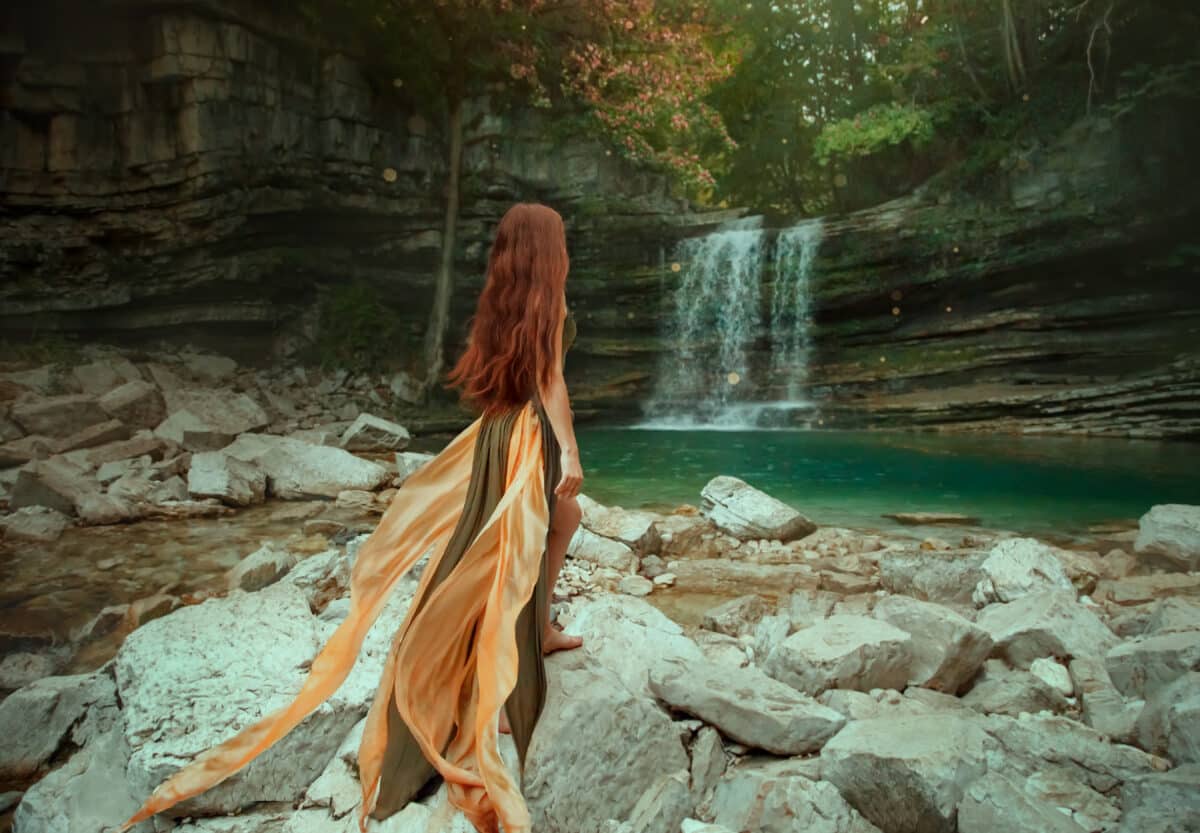
“The Rivers” by Thomas Davis
There’s a far-famed Blackwater that runs to Loch Neagh,
There’s a fairer Blackwater that runs to the sea,—
The glory of Ulster,
The beauty of Munster,
These twin rivers be.
From the banks of that river Benburb’s towers arise;
This stream shines as bright as a tear from sweet eyes:
This fond as a young bride,
That with foeman’s blood dyed,—
Both dearly we prize.
Deep sunk in that bed is the sword of Monroe,
Since ’twixt it and Oonagh he met Owen Roe,
And Charlemont’s cannon
Slew many a man on
These meadows below.
The shrines of Armagh gleam far over yon lea,
Now afar is Dungannon that nursed liberty,
And yonder Red Hugh
Marshal Bagenal o’erthrew
On Béal-an-atha-Buidhe.
But far kinder the woodlands of rich Convamore,
And more gorgeous the turrets of saintly Lismore;
There the stream, like a maiden
With love overladen,
Pants wild on each shore.
Its rocks rise like statues, tall, stately, and fair,
And the trees and the flowers and the mountains and air,
With woman’s soul near you,
To share with, and cheer you,
Make Paradise there.
I would rove by that stream, ere my flag I unrolled;
I would fly to these banks my betrothed to enfold,—
The pride of our sire-land,
The Eden of Ireland,
More precious than gold.
May their borders be free from oppression and blight,
May their daughters and sons ever fondly unite,—
The glory of Ulster,
The beauty of Munster,
Our strength and delight.
“The Banks of Anner” by Robert Dwyer Joyce
In purple robes old Sliavnamon
Towers monarch of the mountains,
The first to catch the smiles of dawn.
With all his woods and fountains; —
His streams dance down by tower and town,
But none since Time began her
Met mortal sight so pure and bright
As winding, wandering Anner.
In hillside’s gleam or woodland’s gloom,
O’er fairy height and hollow.
Upon her banks gay flowerets bloom,
Where’er her course I follow.
And halls of pride tower o’er her tide,
And gleaming bridges span her,
As, laughing gay, she winds away.
The gentle, murmuring Anner.
There gallant men, for freedom born,
With friendly grasp will meet you;
Tiiere lovely maids, as bright as morn,
With sunny smiles will greet you;
And there they strove to raise above
The Red, Green Ireland’s banner, —
There yet its fold they’ll see unrolled
Upon the banks of Anner.
‘T is there we ‘ll stand, with bosoms proud,
True soldiers of our sireland,
When freedom’s wind blows strong and loud,
And floats the flag of Ireland.
Let tyrants quake, and doubly shake
Each traitor and trepanner.
When once we raise our camp-fire’s blaze
Upon the banks of Anner.
God! be with the good old days,
The days so light and airy,
When to blithe friends I sang my lays
In gallant, gay Tipperary;
When fair maids’ sighs and witching eyes
Made my young heart the planner
Of castles rare, built in the air,
Upon the banks of Anner!
The morning sun may fail to show
His light the earth illuming;
Old Sliavnamon to blush and glow
In autumn’s purple blooming;
And shamrocks green no more be seen.
And breezes cease to fan her,
Ere I forget the friends I met
Upon the banks of Anner!
“Arranmore” by Thomas Moore
O Arranmore, loved Arranmore,
How oft I dream of thee,
And of those days when by thy shore
I wandered young and free!
Full many a path I’ve tried since then,
Through pleasure’s flowery maze,
But ne’er could find the bliss again
I felt in those sweet days.
How blithe upon the breezy cliffs
At sunny morn I’ve stood,
With heart as bounding as the skiffs
That danced along the flood!
Or when the western wave grew bright
With daylight’s parting wing,
Have sought that Eden in its light
Which dreaming poets sing, —
That Eden where the immortal brave
Dwell in a land serene,
Whose bowers beyond the shining wave,
At sunset, oft are seen;
Ah, dream, too full of saddening truth!
Those mansions o’er the main
Are like the hopes I built in youth, —
As sunny and as vain!
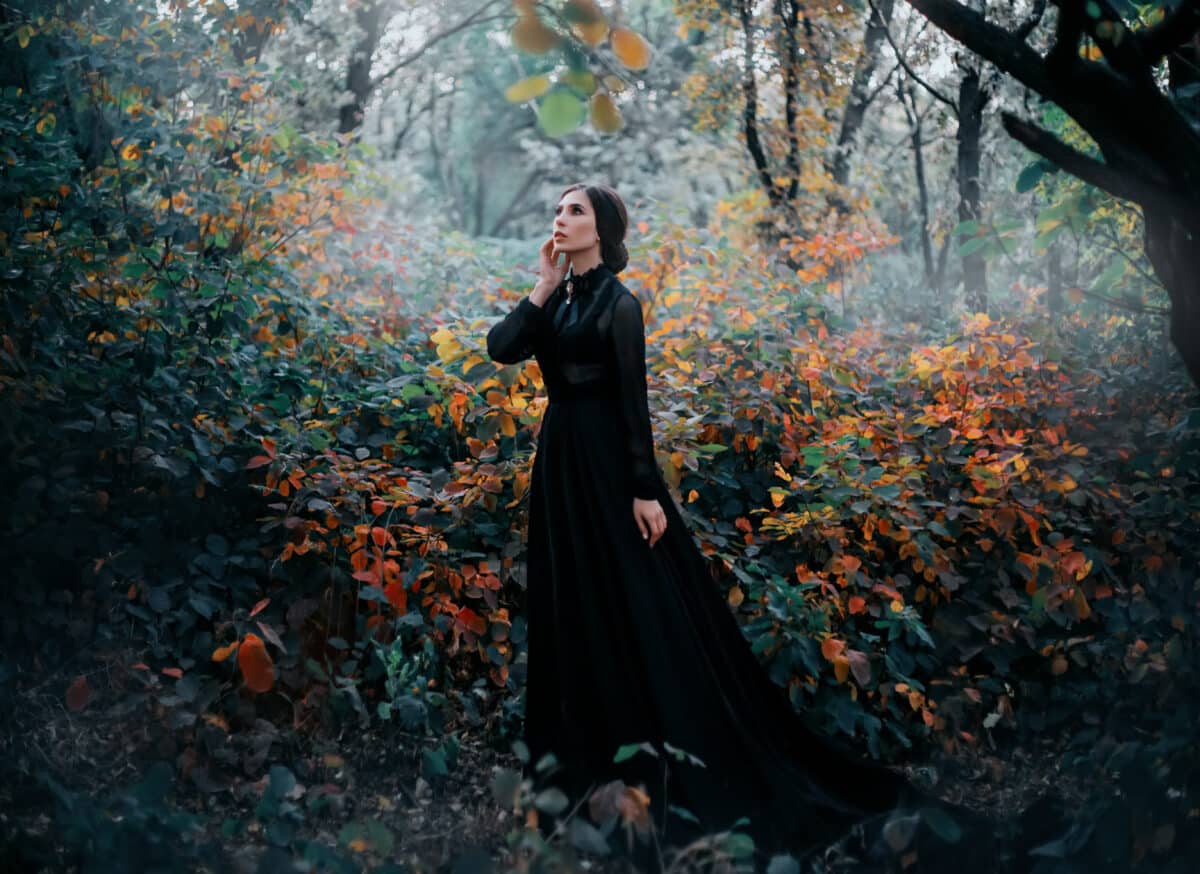
“Funcheon Woods” by Bartholomew Simmons
Dark woods of Funcheon! treading far
The rugged paths of duty,
Though lost to me the vesper star
Now trembling o’er your beauty,
Still vividly I see your glades,
The deep and emerald-hearted,
As when from their luxuriant shades
My lingering steps departed.
That wild autumnal morning!—well
Can haunted thought remember
How came in gusts o’er Corrin-fell
The roar of dark September,
When I through that same woodland path
To endless exile hasted,
Where many an hour my lavish youth
The gold of evening wasted.
O for one day of that glad time!
—Say, reckless heart, how is it
There ’s still so many a cliff to climb,
And well-known nook to visit?
The Filea’s spring is gurgling near,
And may I not, delaying,
One moment watch the glittering sand
Beneath its crystal playing?
No!—“Onward!” cried the mighty breeze,
“From all thy heart rejoices!”
And loud my childhood’s ancient trees
Then lifted up their voices,
As though they felt and mourned the loss
(With heads bowed down and hoary)
Of him who, seated at their feet,
First sang their summer glory.
Too like the fair beloved group
From whose embrace I wended,
In vain the pine-trees’ shapely troop
Their graceful arms extended;
And vainly fast as sisters’ tears
The pallid birch was weeping,
While woke, like cousins’ sad blue eyes,
The winkle’s flower from sleeping.
Farewell,—I thought,—ye only friends
The heart can trust in leaving,
Untroubled by the primal curse,
The dread of your deceiving.
I shall not see at least your fall,
And so, when wronged and wounded,
Still feel secure of peace at last,
By you, old friends! surrounded.
And since in nature’s scenes, the grand
Or beautiful or tender,
He who invests them with a light
That sanctifies their splendor,
Finding no one abiding-place;
Be his the deep reliance
That he for holier worlds received
The bard’s immortal science.
Green Funcheon-side! your sounding woods
Heaved wide as tossing ocean
When my last glance that autumn morn
Turned from their billowy motion,—
Turned where the willow’s tresses streamed
Above the river stooping,
Dark as your own bright lady’s-hair
Magnificently drooping.
Ah, in that wild tumultuous hour
When heaven with earth seemed warring,
And swept the tempest’s demon-power,
The landscape’s lustre marring,
One gentle spirit (haply then
Of Funcheon’s beauty thinking),
A fading girl, like a tired child,
On Death’s calm breast was sinking.
They ’ve made her grave far, far from all
The haunts she prized so dearly;
O, place no marble o’er its turf,
For there shall flourish yearly
Such flowers as in her Bible’s leaves
She loved to fold and cherish,—
Pansies and early primroses,
That, as they blossom, perish.
Rave on, loud winds, from tranquil rest
Ye nevermore shall stir her;
And ye, fair woods, now vanishing
From memory’s darkened mirror,
Farewell; what meeter time for thought,
The lost and loved recalling,
Than in this solemn evening hour
When autumn-leaves are falling!
“Adare” by Gerald Griffin
Oh, sweet Adare! oh, lovely vale!
Oh, soft retreat of sylvan splendour!
Nor summer sun nor morning gale
E’er hail’d a scene more softly tender.
How shall I tell the thousand charms
Within thy verdant bosom dwelling,
Where, lull’d in Nature’s fost’ring arms,
Soft peace abides and joy excelling.
Ye morning airs, how sweet at dawn
The slumbering boughs your song awaken,
Or linger o’er the silent lawn,
With odour of the harebell taken.
Thou rising sun, how richly gleams
Thy smile from far Knockfierna’s mountain,
O’er waving woods and bounding streams,
And many a grove and glancing fountain.
In sweet Adare, the jocund spring
His notes of odorous joy is breathing;
The wild birds in the woodland sing,
The wild flowers in the vale are wreathing.
There wings the Mague, as silver clear,
Among the elms so sweetly flowing;
There, fragrant in the early year,
Wild roses on the banks are blowing.
The wild-duck seeks the sedgy bank,
Or dives beneath the glistening billow,
Where graceful droop and clustering dank
The osier bright and rustling willow.
The hawthorn scents the leafy dale,
In thicket lone the stag is belling,
And sweet along the echoing vale
The sound of vernal joy is swelling.
“The Groves of Blarney” by Richard Alfred Milliken
The groves of Blarney
They look so charming,
Down by the purling
Of sweet silent streams,
Being banked with posies
That spontaneous grow there,
Planted in order
By the sweet rock close.
’T is there ’s the daisy
And the sweet carnation,
The blooming pink,
And the rose so fair;
The daffodowndilly,
Likewise the lily,—
All flowers that scent
The sweet fragrant air.
’T is Lady Jeffers
That owns this station;
Like Alexander,
Or Queen Helen fair,
There ’s no commander
In all the nation,
For emulation,
Can with her compare.
Such walls surround her,
That no nine-pounder
Could dare to plunder
Her place of strength;
But Oliver Cromwell,
Her he did pommel,
And made a breach
In her battlement.
There ’s gravel-walks there
For speculation
And conversation
In sweet solitude.
’T is there the lover
May hear the dove, or
The gentle plover
In the afternoon;
And if a lady
Would be so engaging
As to walk alone in
Those shady bowers,
’T is there the courtier
He may transport her
Into some fort, or
All under ground.
For ’t is there ’s a cave where
No daylight enters,
But cats and badgers
Are forever bred;
Being mossed by nature,
That makes it sweeter
Than a coach-and-six
Or a feather-bed.
’T is there the lake is,
Well stored with perches
And comely eels in
The verdant mud;
Besides the leeches,
And groves of beeches,
Standing in order
For to guard the flood.
There ’s statues gracing
This noble place in,—
All heathen gods
And nymphs so fair;
Bold Neptune, Plutarch,
And Nicodemus,
All standing naked
In the open air!
So now to finish
This brave narration,
Which my poor genius
Could not entwine;
But were I Homer
Or Nebuchadnezzar,
’T is in every feature
I would make it shine.
There is a boat on
The lake to float on,
And lots of beauties
Which I can’t entwine;
But were I a preacher
Or a classic teacher,
In every feature
I ’d make ’em shine!
There is a stone there
That whoever kisses,
O, he never misses
To grow eloquent;
’T is he may clamber
To a lady’s chamber,
Or become a member
Of Parliament:
A clever spouter
He ’ll soon turn out, or
An out-and-outer,
“To be let alone.”
Don’t hope to hinder him,
Or to bewilder him,
Sure he ’s a pilgrim
From the Blarney Stone!
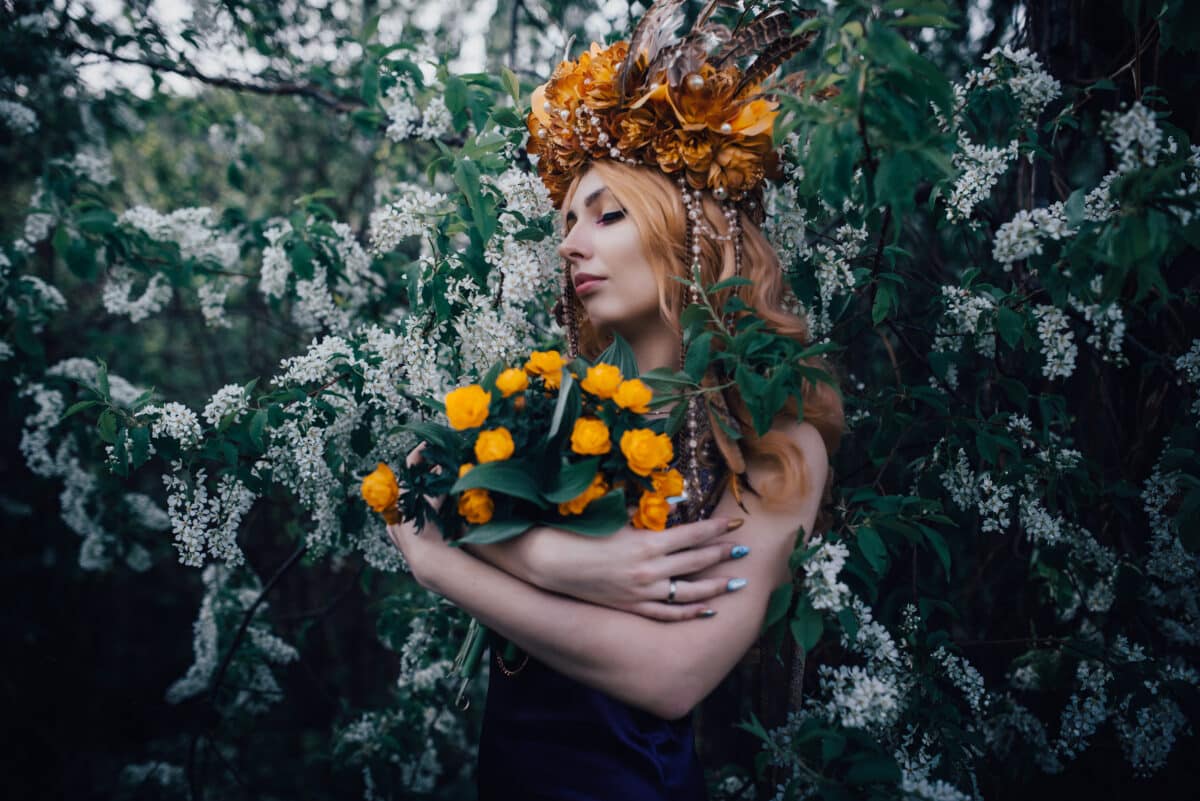
“Glengariff” by Sir Aubrey de Vere
I.
Gazing from each low bulwark of this bridge,
How wonderful the contrast! Dark as night,
Here, amid cliffs and woods, with headlong might,
The black stream whirls, through ferns and drooping sedge,
’Neath twisted roots moss-brown, and weedy ledge,
Gushing. Aloft, from yonder birch-clad height,
Leaps into air a cataract, snow-white;
Falling to gulfs obscure. The mountain ridge,
Like a gray warder, guardian of the scene,
Above the cloven gorge gloomily towers.
O’er the dim woods a gathering tempest lours;
Save where athwart the moist leaves’ lucid green
A sunbeam, glancing through disparted showers,
Sparkles along the rill with diamond sheen!
II.
A sun-burst on the bay! Turn and behold!
The restless waves, resplendent in their glory,
Sweep glittering past yon purpled promontory,
Bright as Apollo’s breastplate. Bathed in gold,
Yon bastioned islet gleams. Thin mists are rolled,
Translucent, through each glen. A mantle hoary
Veils those peaked hills, shapely as e’er in story,
Delphic, or Alpine, or Vesuvian old,
Minstrels have sung. From rock and headland proud
The wildwood spreads its arms around the bay:
The manifold mountain cones, now dark, now bright,
Now seen, now lost, alternate from rich light
To spectral shade; and each dissolving cloud
Reveals new mountains while it floats away.
“A Vision of Connaught in the Thirteenth Centur” by James Clarence Mangan
I walked entranced
Through a land of morn;
The sun, with wondrous excess of light,
Shone down and glanced
Over seas of corn
And lustrous gardens aleft and right.
Even in the clime
Of resplendent Spain
Beams no such sun upon such a land;
But it was the time,
’T was in the reign,
Of Cáhal Mór of the Wine-red Hand.
Anon stood nigh
By my side a man
Of princely aspect and port sublime.
Him queried I,
“O my Lord and Khan,
What clime is this, and what golden time?”
When he,—“The clime
Is a clime to praise,
The clime is Erin’s, the green and bland;
And it is the time,
These be the days,
Of Cáhal Mór of the Wine-red Hand!”
Then saw I thrones
And circling fires,
And a dome rose near me, as by a spell,
Whence flowed the tones
Of silver lyres,
And many voices in wreathéd swell;
And their thrilling chime
Fell on mine ears
As the heavenly hymn of an angel-band,—
“It is now the time,
These be the years,
Of Cáhal Mór of the Wine-red Hand!”
I sought the hall,
And, behold! a change
From light to darkness, from joy to woe!
King, nobles, all,
Looked aghast and strange;
The minstrel-group sate in dumbest show!
Had some great crime
Wrought this dread amaze,
This terror? None seemed to understand!
’T was then the time,
We were in the days,
Of Cáhal Mór of the Wine-red Hand.
I again walked forth;
But lo! the sky
Showed fleckt with blood, and an alien sun
Glared from the north,
And there stood on high,
Amid his shorn beams, a skeleton!
It was by the stream
Of the castled Main,
One autumn eve, in the Teuton’s land,
That I dreamed this dream
Of the time and reign
Of Cáhal Mór of the Wine-red Hand!
“Glandore” by Rev. Dr. Patrick Aloysius Murray
Though I have forsaken long
Fairy land of tuneful song,
Though my lips forget to tell
Thoughts they once could utter well,
How can I, with heart and tongue,
See unloved, or love unsung,
Scenes like those that rise before
The enchanted eye in sweet Glandore?
Though a high and holy call
Claims my soul and senses all,
Saints might sing a type like this
Of their own bright realms of bliss;
Man may tell in strains of love,
O, how fair the world above,
When such beauty beameth o’er
The heaven below of sweet Glandore!
Cloudless sky and sparkling sea,
Cliff and shore and forest tree,
Glen and stream and mountain blue,
Burst at once upon the view;
The gay, the beautiful, the grand,
Blending over wave and land,
Till the eye can ask no more
Than it hath in sweet Glandore.
But the sunshine on the sea,
And the emerald of the lea,
And the ever smiling skies
Charm not heart or soul or eyes,
Like the grasp of friendship’s hand,
Like the welcome warm and bland,
As the sunlight gleaming o’er
The happy homes of sweet Glandore.
For the loveliest scenes that e’er
Smiled of heaven the image fair,
Like the beautiful in death,
Have nor soul nor voice nor breath;
O, ’t is but the kindly heart
Can to them true life impart.
Tree and flower, and sea and shore,
Thus live and breathe in sweet Glandore.
Time may chill and bow and bind
Glowing heart and chainless mind;
They droop,—the flowers of fancy, youth,
Round the ripening fruits of truth;
Yet I feel, while here I stray,
Dawn again youth’s sunny day;
Fancy, with her radiant store,
Comes again in sweet Glandore.
Lovely region of Glandore!
Friends beloved forevermore!
Mid the tranquil bliss I feel
One sad thought begins to steal,—
Soon must come the parting day,
And my steps no more will stray,
And my voice be heard no more
Among the scenes of sweet Glandore!

“Come to Glengariff! Come!” by Gerald Griffin
Come to Glengariff! come!
Close by the sea,
Ours is a happy home,
Peaceful and free.
There, there, far away,
Happy by our sunny bay,
We live from day to day,
Blithe as the bee.
For ours is a sunny home,
Joyous and free;
Come to Glengariff! come!
Close by the sea.
“The Oaks of Gleneigh” by Robert Dwyer Joyce
O, think of the days when the crag’s hoary masses
Bent o’er one green forest in Houra’s wild passes,
When the gray wolf was king of the forest and mountain,
And the red deer ran free by the blue torrent’s shore,
When the prey scarcely rested at eve by the fountain,
Swept on by the spear of the wild creachadore!
’T was a brave time, a wild time,—the hills seem to mourn
Till the splendor of glade and of forest return;
Yet is there not splendor as wild and as shaggy,
Where the huge blasted roots of that forest remain,
Wide spread o’er each deep cave and precipice craggy,
Sending scions of strength to the blue sky again?
Afar where Molama in thunder is flowing,
Afar in Gleneigh are these strong scions growing,—
They spring from the stream and they tower from the ledges
Of the huge rocks which frown o’er that wild fairy dell;
Like young guardian giants encircling the edges
Of the deep, silent pool and the moss-wreathéd well.
How thick in the summer their green leaves were shining!
How sear and how scattered at autumn’s declining!
But the wild hills shall see them far greener than ever,
When winter hath fled from the bright smiles of May;
Ah! thus should Adversity’s children endeavor
To breast the rude blasts, like the oaks of Gleneigh!
“The Gorsy Glen” by Robert Leighton
Between Loch-Foyle and Greenan’s ancient fort,
From Derry’s famous walls a little way,
There dreams a gorsy glen, in whose lone heart
I mused a Sabbath day.
A nameless glen, one mass of yellow gorse,
That hides the sparkle of a trotting burn,
Save where in dimpling pools it stays its force,
Or takes a rocky turn.
The sandy linnet sang, the tiny wren
Pour’d in the burn its tiny melodies.
The air was honey-laden, and the glen
All murmurous with bees.
A straggling crow, upon its woodward way,
Might start an echo with its rusty croak;
But all around the quiet Sabbath lay,
Hush’d from the week-day yoke.
Near, yet all hidden from, the ways of men,
No foot into my sanctuary stole;
I wander’d with my shadow in the glen—
The only living soul.
Yet, many more were in the glen, ‘twould seem:
I heard, or thought I heard, their whisper’d words,
And knew ’twas not the bees, the babbling stream,
Or carol of the birds.
And sometimes through the sunniest gleams of day
There pass’d a light intenser than the gleam—
A living soul without its grosser clay?
Or but my waking dream?
Who knows? who knows? The dream to-day is found
A verity to-morrow. Things have been
Forever with us in our daily round,
Though now but newly seen.
Ah! could we by a purer life refine
The veil that keeps the inward from our ken,
No lonely fellowship had then been mine
Within the gorsy glen.
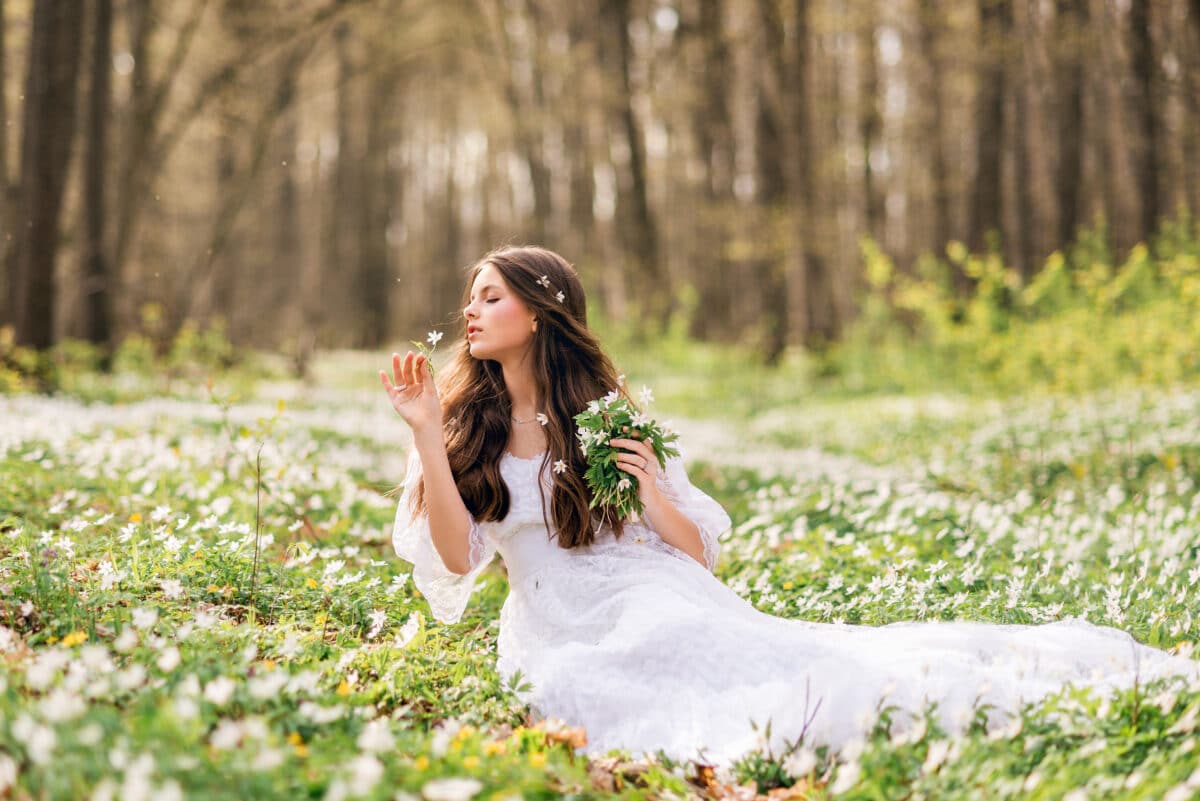
“Sweet Innisfallen” by Thomas Moore
Sweet Innisfallen, fare thee well,
May calm and sunshine long be thine!
How fair thou art let others tell —
To feel how fair shall long be mine.
Sweet Innisfallen, long shall dwell
In memory’s dream that sunny smile,
Which o’er thee on that evening fell,
When first I saw thy fairy isle.
‘Twas light, indeed, too blest for one,
Who had to turn to paths of care —
Through crowded haunts again to run,
And leave thee bright and silent there;
No more unto thy shores to come,
But, on the world’s rude ocean tost,
Dream of thee sometimes as a home
Of sunshine he had seen and lost.
Far better in thy weeping hour
To part from thee, as I do now,
When mist is o’er thy blooming bowers,
Like sorrow’s veil on beauty’s brow.
For, though unrivall’d still thy grace,
Thou dost not look, as then, too blest,
But, thus in shadow, seem’st a place
Where erring man might hope to rest —
Might hope to rest, and find in thee
A gloom like Eden’s, on the day
He left its shade, when every tree,
Like thine, hung weeping o’er his way.
Weeping or smiling, lovely isle!
And all the lovelier for thy tears —
For though but rare thy sunny smile,
‘Tis heaven’s own glance when it appears.
Like feeling hearts whose joys are few,
But, when indeed they come, divine —
The brightest light the sun e’er threw
Is lifeless to one gleam of thine!
“The Hills of Sweet Tipperary” by Robert Dwyer Joyce
O Mary dear, ’t is long ago
Since hand in hand together
We sat in pleasant Rossaroe,
Amidst the blooming heather;
Your eyes were like the lustre shed
By heaven so blue and airy,
Your cheeks were like the roses red
Mid green hills of Tipperary.
O, the hills, the hills so green,
The hills so high and airy,
May heaven shine o’er them ever sheen,
The hills of sweet Tipperary.
We sat while evening’s light illumed
Comailthe’s stately mountain,
Where heather bells and gorse flowers bloomed
Round old St. Brendan’s fountain;
The redbreast’s song, the thrush’s lay,
Like strains from haunts of faery,
Our vespers for the closing day
Mid green hills of Tipperary.
O, the hills, etc.
The bubbling well, the ruined cairn
Where slept some warrior olden,
The foxglove, heath, and waving fern,
And gorse flowers gay and golden:
The sunlit tree, with shattered arm,
That eve, true love unchary
Cast o’er them all some magic charm,
Mid green hills of Tipperary.
O, the hills, etc.
What vows in that sweet spot we made
Of true love, fond and tender,
Nor dreamed that joy could falsely fade,
Like that gay sunset’s splendor;
Nor thought death’s gloom and misery
Our happiness could vary,
So blindly rapt in love were we,
Mid green hills of Tipperary.
O, the hills, etc.
What hopes were doomed, what fortunes fell,
Since you and I together
Sat by St. Brendan’s sunlit well,
Amidst the blooming heather!
I wander far from Rossaroe,
No longer blithe and airy,
And on your grave the shamrocks grow,
Mid green hills of Tipperary.
O, the hills, the hills so green,
The hills so high and airy,
May heaven shine o’er them ever sheen,
The hills of sweet Tipperary.
“Colum-Cille’s Farewell to Ireland” by Douglas Hyde
Alas for the voyage, O High King of Heaven,
Enjoined upon me,
For that I on the red plain of bloody Cooldrevin
Was present to see.
How happy the son is of Dima; no sorrow
For him is designed,
He is having, this hour, round his own hill in Durrow,
The wish of his mind.
The sounds of the winds in the elms, like strings of
A harp being played,
The note of a blackbird that claps with the wings of
Delight in the shade.
With him in Ros-Grencha the cattle are lowing
At earliest dawn,
On the brink of the summer the pigeons are cooing
And doves in the lawn.
Three things am I leaving behind me, the very
Most dear that I know,
Tir-Leedach I’m leaving, and Durrow and Derry;
Alas, I must go!
Yet my visit and feasting with Comgall have eased me
At Cainneach’s right hand,
And all but thy government, Eiré, have pleased me,
Thou waterful land.
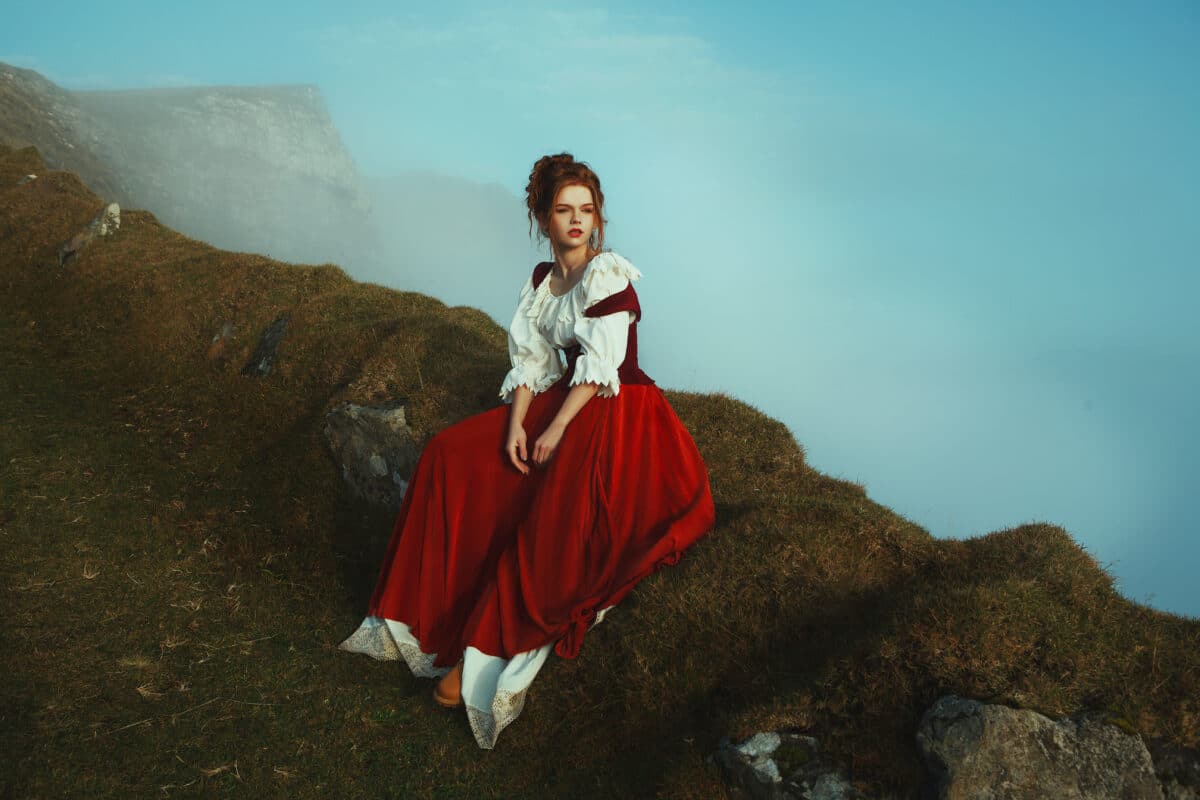
“The Hill of Killenarden” by Charles Graham Halpine
Though time effaces memory,
And griefs the bosom harden,
I ’ll ne’er forget, where’er I be,
That day at Killenarden;
For there, while fancy revelled wide,
The summer’s day flew o’er me;
The friends I loved were at my side,
And Irish fields before me.
The road was steep; the pelting showers
Had cooled the sod beneath us;
And there were lots of mountain flowers,
A garland to enwreathe us.
Far, far below the landscape shone
With wheat and new-mown meadows,
And as o’erhead the clouds flew on,
Beneath swept on their shadows.
O friends, beyond the Atlantic’s foam
There may be nobler mountains,
And in our new far Western home
Green fields and brighter fountains;
But as for me, let time destroy
All dreams, but this one pardon,
And barren memory long enjoy
That day on Killenarden.
“Aimirgin’s Invocation” by Professor MacNeill
I invoke the land of Ireland:
Much-coursed be the fertile sea,
Fertile be the fruit-strewn mountain,
Fruit-strewn be the showery wood,
Showery be the river of waterfalls,
Of waterfalls be the lake of deep pools,
Deep-pooled be the hill-top wall,
A well of tribes be the assembly,
An assembly of kings be Temair,
Temair be the hill of the tribes,
The tribes of the sons of Mil,
Of Mil of the ships, the barks!
Let the lofty bark be Ireland,
Lofty Irerland, darkly sung,
An incantation of great cunning:
The great cunning of the wives of Bres,
The wives of Bres, of Buaigne;
The great lady, Ireland,
Eremon hath conquered her,
I, Eber, have invoked for her.
I invoke the land of Ireland!
“Ireland” by Thomas Frederick Young
Thou green isle of sorrows, I think of thee daily,
And sad are the thoughts that come into my brain,
When here, to my home, o’er the wide, rolling ocean,
Is wafted the news of thy trouble and pain.
Oh, Erin! I love thee in spite of thine errors,
And now for thee, Erin, my heart is forlorn,
Disturb’d as thou art by such various terrors,
Thou beautiful isle, where my kindred were born.
E’en now, in my thoughts, I can climb thy steep mountains,
Or roam through thy valleys, where green shamrocks grow,
Or over thy meadows, where hedges of hawthorn
Stand gracefully clipp’d, an impassable row.
And I see the thatch’d cottage, where often, the stranger,
With kind word of welcome, is met at the door;
The castle or tow’r, a shelter from danger,
When foemen invaded thy sea-beaten shore.
Oh, Erin, I roam, in my thoughts, by thy rivers,
I stand by thy lakes, in delight at the view,
And ever I pray for the time, that delivers
This nation from strife, and from misery, too.
From Shannon’s green banks unto Erne’s limpid waters,
I’ve travell’d in thought, while this was my pray’r:
That sons of Fermanagh, and Limerick’s daughters.
Should join in a union of loyalty, there.
For what loyal maid, from the banks of the Shannon,
Or what Irish lad, from the slopes of the Bann,
Would not dread the day, when the boom of the cannon
Should speak of destruction and death, from the van?
And what loyal son of old Ireland’s glory,
From Cork’s cove of beauty, to Foyle’s distant shore,
Would not mourn the day, when, cold, lifeless and gory,
Brave forms downfallen, should rise never more?
And who would not hail, throughout Erin’s dominion,
The time when Religion’s bright form should arise,
And sail o’er the land; with her blest, healing pinion,
And bring to all hearts the truth in one guise?
And then, in his home, afar o’er the ocean,
Or by the turf fire, upon Erin’s old sod,
Each Irishman, kneeling in humble devotion,
Would love all his brothers, while praying to God.
Oh Erin, mavourneen! Let Love’s joyous fingers
Strike out from your harps, one glad, resonant strain,
And, if one discordant, harsh, jarring note lingers,
Oh, strike for your country, together again!
And then, when your hands and your hearts are united,
When you kneel at one shrine, when you bow to one law.
With a sea of glad brightness, your isle shall be lighted,
While thunders the chorus, of Erin-go-bragh.
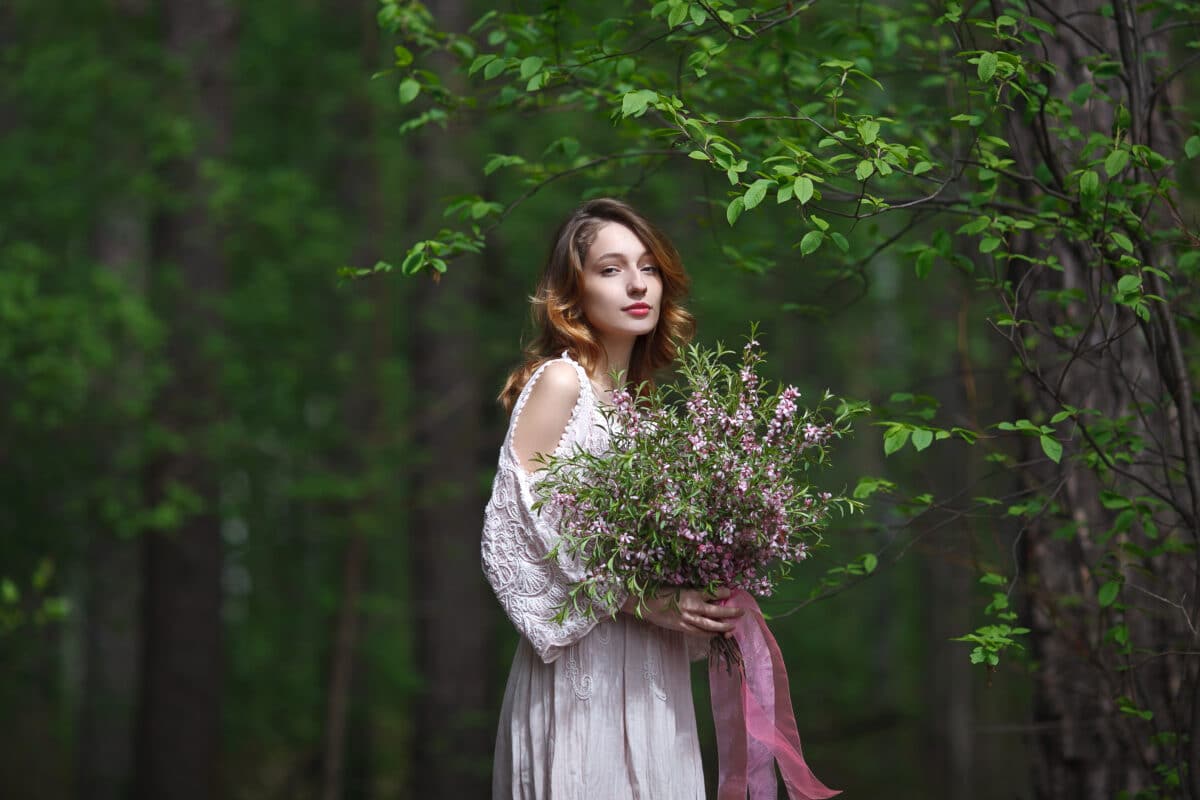
“A Day in Ireland” by Michael Cavanagh
Four sharp scythes sweeping-in concert keeping
The rich-robed meadow’s broad bosom o’er,
Four strong men mowing, with bright health glowing
A long green swath spread each man before;
With sinews springing-my keen blade swinging,-
I strode-the fourth man in that blithe band;
As stalk of corn that summer morn,
The scythe felt light in my stalwart hand.
Oh, King of Glory! How changed my story,
Since in youth’s noontide-long, long ago,
I mowed that meadow-no cloudy shadow
Between my brow and the hot sun’s glow;
Fair girls raking the hay-and making
The fields resound with their laugh and glee,
Their voices ringing-than cuckoo’s singing,
Made music sweeter by far to me.
Bees hovered over the honied clover,
Then nestward hied upon wings of light;
No use in trying to trace them flying-
One brief low hum and they’re out of sight,
On downy thistle bright insects nestle,
Or flutter skyward on painted wings,
At times alighting on flowers inviting-
‘Twas pleasant watching the airy things.
From hazel bushes came songs of thrushes
And blackbirds-sweeter than harper’s lay;
While high in ether-with sun-tipped feather-
The skylark warbled his anthem gay;
With throats distended, sweet linnets blended
A thousand notes in one glorious chime,
Oh, King Eternal, ’twas life supernal
In beauteous Erin, that pleasant time.
“Colum Cille’s Greeting to Ireland” by Kuno Meyer
Delightful to be on the Hill of Howth
Before going over the white-haired sea:
The dashing of the wave against its face,
The bareness of its shores and of its border.
Delightful to be on the Hill of Howth
After coming over the white-bosomed sea;
To be rowing one’s little coracle,
Ochone! on the wild-waved shore.
Great is the speed of my coracle,
And its stern turned upon Derry:
Grievous is my errand over the main,
Travelling to Alba of the beetling brows.
My foot in my tuneful coracle,
My sad heart tearful:
A man without guidance is weak,
Blind are all the ignorant.
There is a grey eye
That will look back upon Erin:
It shall never see again
The men of Erin nor her women.
I stretch my glance across the brine
From the firm oaken planks;
Many are the tears of my bright soft grey eye
As I look back upon Erin.
My mind is upon Erin,
Upon Loch Lene, upon Linny,
Upon the land where Ulstermen are,
Upon gentle Munster and upon Meath.
Many in the East are lanky chiels,
Many diseases there and distempers,
Many they with scanty dress,
Many the hard and jealous hearts.
Plentiful in the West the fruit of the apple-tree,
Many kings and princes;
Plentiful are luxurious sloes,
Plentiful oak-woods of noble mast.
Melodious her clerics, melodious her birds,
Gentle her youths, wise her elders,
Illustrious her men, famous to behold,
Illustrious her women for fond espousal.
It is in the West sweet Brendan is,
And Colum son of Criffan,
And in the West fair Baithin shall be,
And in the West shall be Adamnan.
Carry my greeting after that
To Comgall of eternal life:
Carry my greeting after that
To the stately king of fair Navan.
Carry with thee, thou fair youth,
My blessing and my benediction:
One half upon Erin, sevenfold,
And half upon Alba at the same time.
Carry my blessing with thee to the West,
My heart is broken in my breast:
Should sudden death overtake me,
It is for my great love of the Gael.
Gael! Gael! beloved name!
It gladdens the heart to invoke it:
Beloved is Cummin of the beauteous hair,
Beloved are Cainnech and Comgall.
Were all Alba mine
From its centre to its border,
I would rather have the site of a house
In the middle of fair Derry.
It is for this I love Derry,
For its smoothness, for its purity,
And for its crowd of white angels
From one end to another.
It is for this I love Derry,
For its smoothness, for its purity;
All full of angels
Is every leaf on the oaks of Derry.
My Derry, my little oak-grove,
My dwelling and my little cell,
O living God that art in Heaven above,
Woe to him who violates it!
Beloved are Durrow and Derry,
Beloved is Raphoe with purity,
Beloved Drumhome with its sweet acorns,
Beloved are Swords and Kells!
Beloved also to my heart in the West
Drumcliff on Culcinne’s strand:
To gaze upon fair Loch Foyle —
The shape of its shores is delightful.
Delightful it is,
The deep-red ocean where the sea-gulls cry,
As I come from Derry afar,
It is peaceful and it is delightful.
“A Shamrock From the Irish Shore” by Denis Florence MacCarthy
O postman! speed thy tardy gait–
Go quicker round from door to door;
For thee I watch, for thee I wait,
Like many a weary wanderer more.
Thou brightest news of bale and bliss–
Some life begun, some life well o’er.
He stops–he rings!–O heaven! what’s this?–
A shamrock from the Irish shore!
Dear emblem of my native land,
By fresh fond words kept fresh and green;
The pressure of an unfelt hand–
The kisses of a lip unseen;
A throb from my dead mother’s heart–
My father’s smile revived once more–
Oh, youth! oh, love! oh, hope thou art,
Sweet shamrock from the Irish shore!
Enchanter, with thy wand of power,
Thou mak’st the past be present still:
The emerald lawn–the lime-leaved bower–
The circling shore–the sunlit hill;
The grass, in winter’s wintriest hours,
By dewy daisies dimpled o’er,
Half hiding, ‘neath their trembling flowers,
The shamrock of the Irish shore!
And thus, where’er my footsteps strayed,
By queenly Florence, kingly Rome–
By Padua’s long and lone arcade–
By Ischia’s fires and Adria’s foam–
By Spezzia’s fatal waves that kissed
My poet sailing calmly o’er;
By all, by each, I mourned and missed
The shamrock of the Irish shore!
I saw the palm-tree stand aloof,
Irresolute ‘twixt the sand and sea:
I saw upon the trellised roof
Outspread the wine that was to be;
A giant-flowered and glorious tree
I saw the tall magnolia soar;
But there, even there, I longed for thee,
Poor shamrock of the Irish shore!
Now on the ramparts of Boulogne,
As lately by the lonely Rance,
At evening as I watch the sun,
I look! I dream! Can this be France
Not Albion’s cliffs, how near they be,
He seems to love to linger o’er;
But gilds, by a remoter sea,
The shamrock on the Irish shore!
I’m with him in that wholesome clime–
That fruitful soil, that verdurous sod–
Where hearts unstained by vulgar crime
Have still a simple faith in God:
Hearts that in pleasure and in pain,
The more they’re trod rebound the more,
Like thee, when wet with heaven’s own rain,
O shamrock of the Irish shore!
Memorial of my native land,
True emblem of my land and race–
Thy small and tender leaves expand
But only in thy native place.
Thou needest for thyself and seed
Soft dews around, kind sunshine o’er;
Transplanted thou’rt the merest weed,
O shamrock of the Irish shore.
Here on the tawny fields of France,
Or in the rank, red English clay,
Thou showest a stronger form perchance;
A bolder front thou mayest display,
More able to resist the scythe
That cut so keen, so sharp before;
But then thou art no more the blithe
Bright shamrock of the Irish shore!
Ah, me! to think–thy scorns, thy slights,
Thy trampled tears, thy nameless grave
On Fredericksburg’s ensanguined heights,
Or by Potomac’s purpled wave!
Ah, me! to think that power malign
Thus turns thy sweet green sap to gore,
And what calm rapture might be thine,
Sweet shamrock of the Irish shore!
Struggling, and yet for strife unmeet,
True type of trustful love thou art;
Thou liest the whole year at my feet,
To live but one day at my heart.
One day of festal pride to lie
Upon the loved one’s heart–what more?
Upon the loved one’s heart to die,
O shamrock of the Irish shore!
And shall I not return thy love?
And shalt thou not, as thou shouldst, be
Placed on thy son’s proud heart above
The red rose or the fleur-de-lis?
Yes, from these heights the waters beat,
I vow to press thy cheek once more,
And lie for ever at thy feet,
O shamrock of the Irish shore!
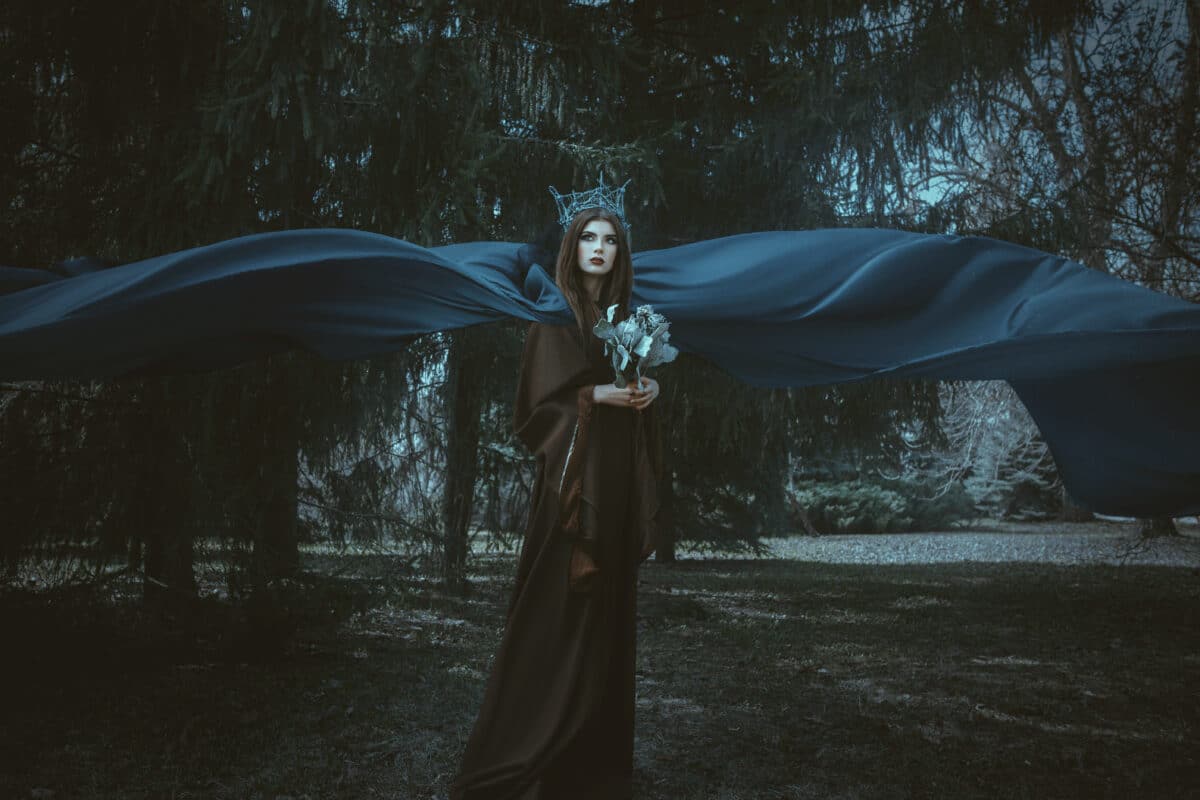
“The Three Roads” by Victor James Daley
There is a town in Ireland,
A little town I know;
Its girls have tender Irish eyes
Beneath their brows of snow;
And in the field around it
The Fairy Hawthorns grow.
O, the Hawthorn is a Queen
And the daughter of a King,
And amidst her branches green
The sweet brown thrushes sing.
And from that little city
Three roads forever run
And on those roads the people,
The father and the son,
The mother and the daughter,
Walk till the day is done.
O, the Hawthorn is a Queen
And the daughter of a King,
And amidst her branches green
The thrushes sadly sing.
One road runs to the seaport
Where stately vessels lie –
American, Australian –
The weeping exiles cry,
Farewell to Grave and Hearthstone!
Dear Ireland – good-bye!
O, the Hawthorn is a Queen
And the daughter of a King,
And amidst her branches green
‘Farewell!’ the thrushes sing.
One road it is a red, red road –
That road to England goes;
The battle-drums are sounding,
The trump of battle blows;
And Ireland’s sons go forth to fight
Against Red England’s foes.
O, the Hawthorn is a Queen
And the daughter of a King,
And within her heart of green
The mournful thrushes sing.
One road it is a quiet road;
They travel it full slow,
Their eyes are filled with sorrow,
The silent folk who go
To where the Stones of Silence
Are shining, row on row.
O, the Hawthorn is a Queen
And a Lady fair and grand,
And the thrushes sing the keen
Of the Dead – in Ireland.
“The Song Of Wandering Aengus” by William Butler Yeats
I went out to the hazel wood,
Because a fire was in my head,
And cut and peeled a hazel wand,
And hooked a berry to a thread;
And when white moths were on the wing,
And moth-like stars were flickering out,
I dropped the berry in a stream
And caught a little silver trout.
When I had laid it on the floor
I went to blow the fire a-flame,
But something rustled on the floor,
And someone called me by my name:
It had become a glimmering girl
With apple blossom in her hair
Who called me by my name and ran
And faded through the brightening air.
Though I am old with wandering
Through hollow lands and hilly lands,
I will find out where she has gone,
And kiss her lips and take her hands;
And walk among long dappled grass,
And pluck till time and times are done,
The silver apples of the moon,
The golden apples of the sun.
“An Irish Song” by Clinton Scollard
Over me lifts the peat-reek
That parts and drifts and veers,
And the wind’s uneasy moaning
Is loud about mine ears.
The waves upon the shingle
They murmur drearily,
And the streamers of the fog-wraith
Drive in from the open sea.
The mist hangs over the passes,
The mist hangs over the moors,
And the eerie cry of the curlew
It quavers and endures.
And it all is lonely, lonely,
And there ’s sorrow on every face,
But the heart of me needs must love it,
For the land is mine own place!
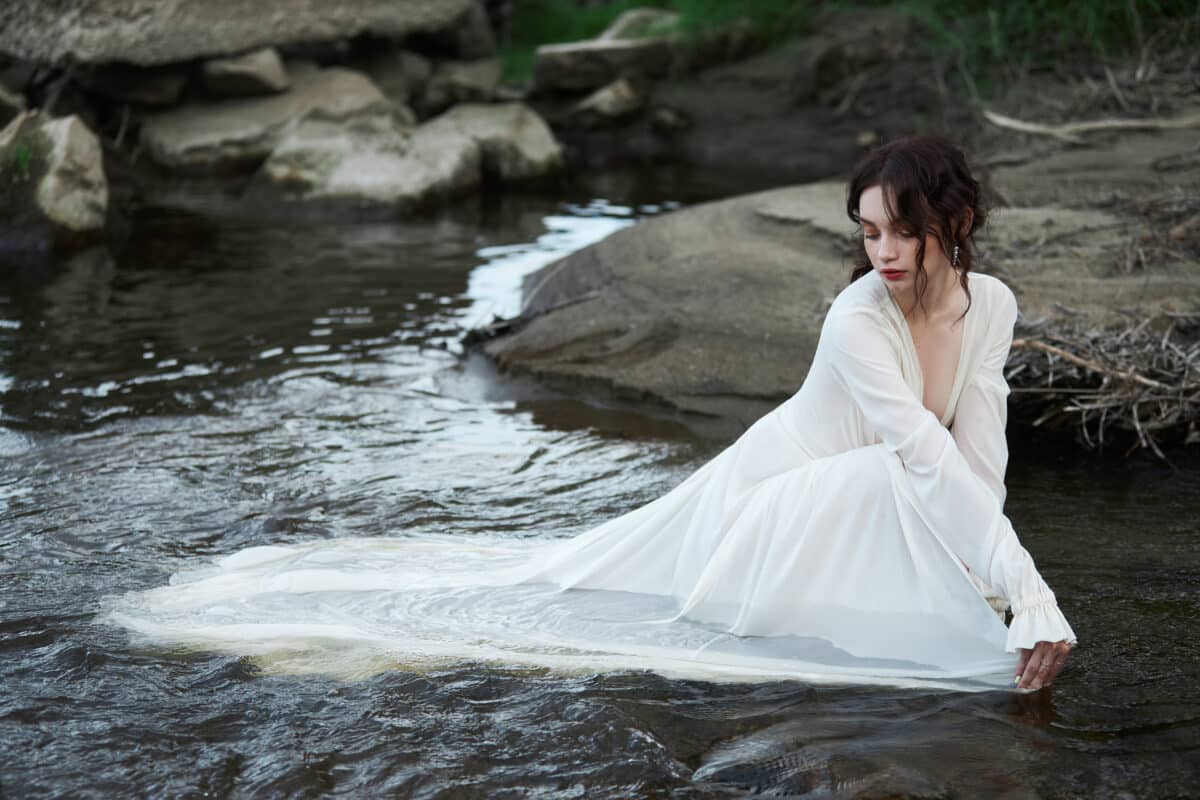
“The Lake Isle Of Innisfree” by W.B. Yeats
I will arise and go now, and go to Innisfree,
And a small cabin build there, of clay and wattles made:
Nine bean-rows will I have there, a hive for the honeybee,
And live alone in the bee-loud glade.
And I shall have some peace there, for peace comes dropping slow,
Dropping from the veils of the morning to where the cricket sings;
There midnight’s all a glimmer, and noon a purple glow,
And evening full of the linnet’s wings.
I will arise and go now, for always night and day
I hear lake water lapping with low sounds by the shore;
While I stand on the roadway, or on the pavements grey,
I hear it in the deep heart’s core.
